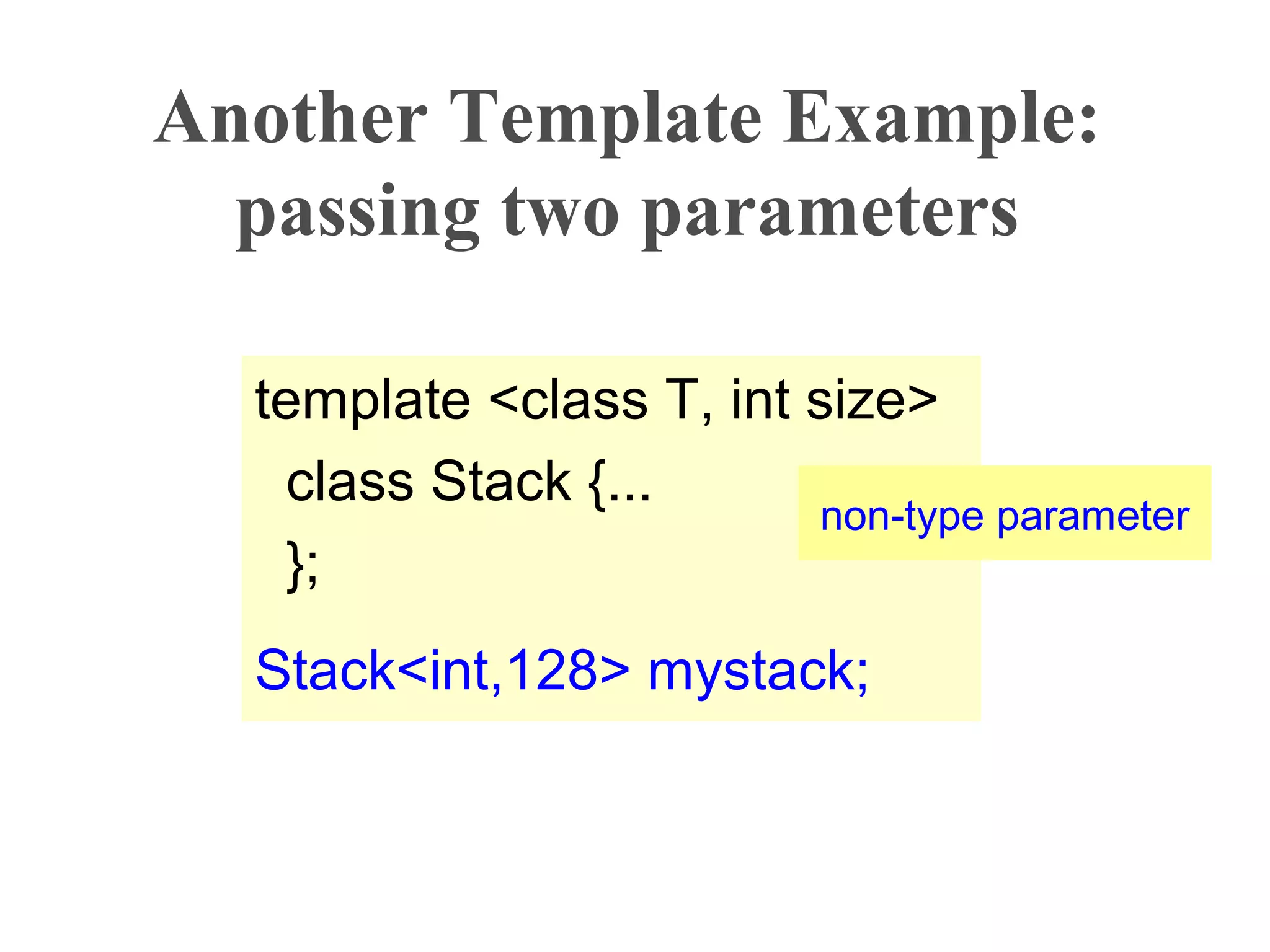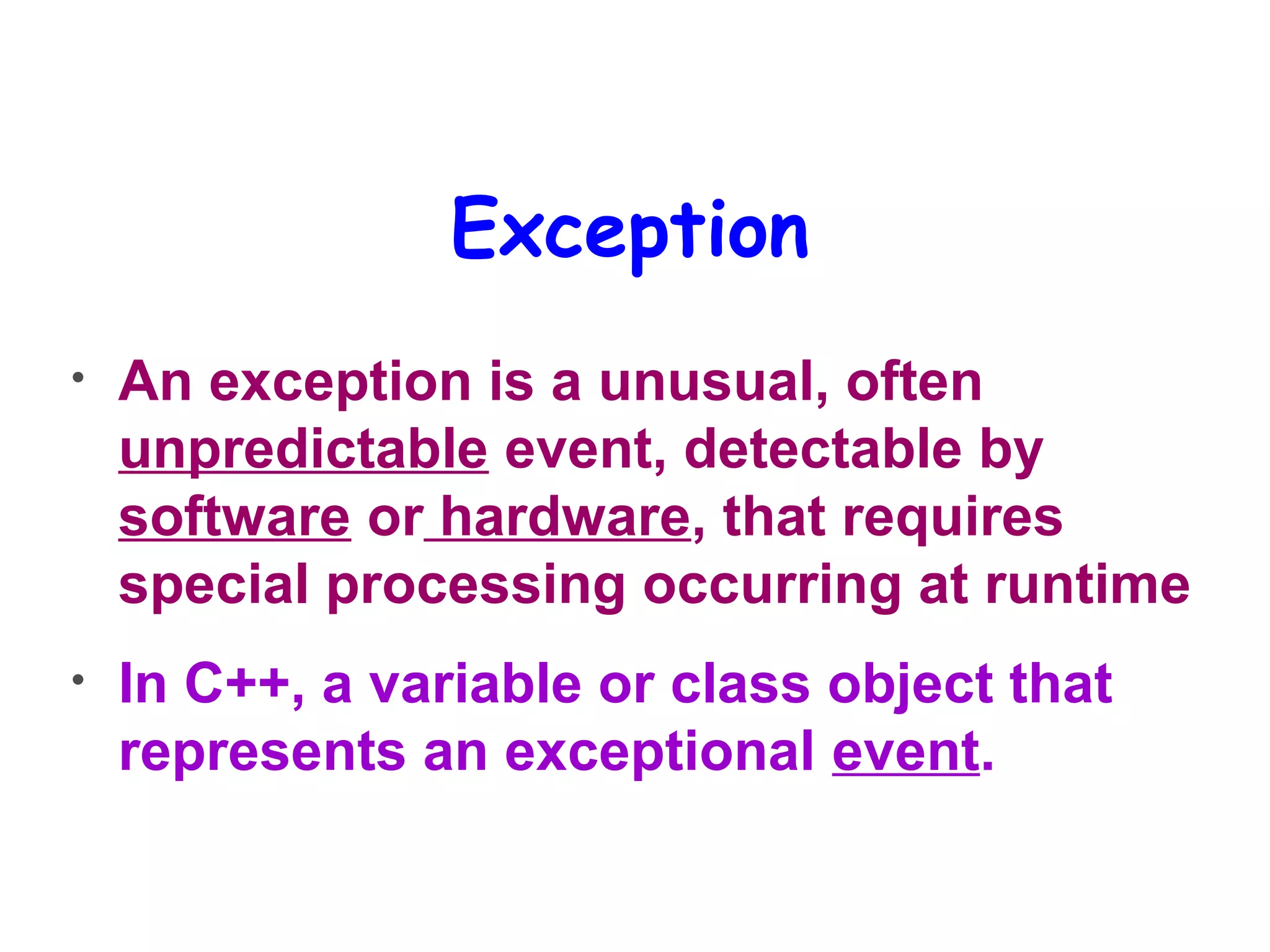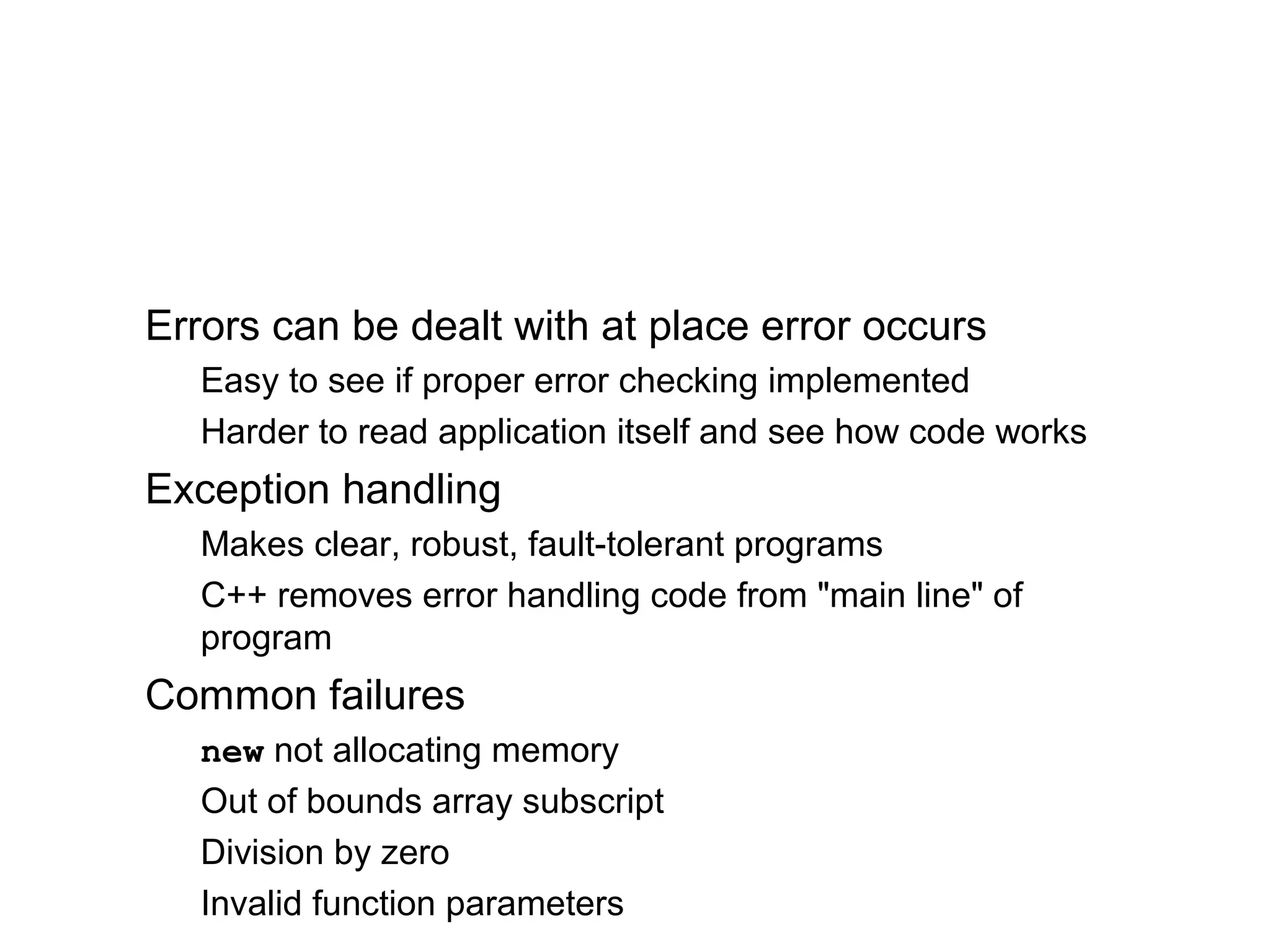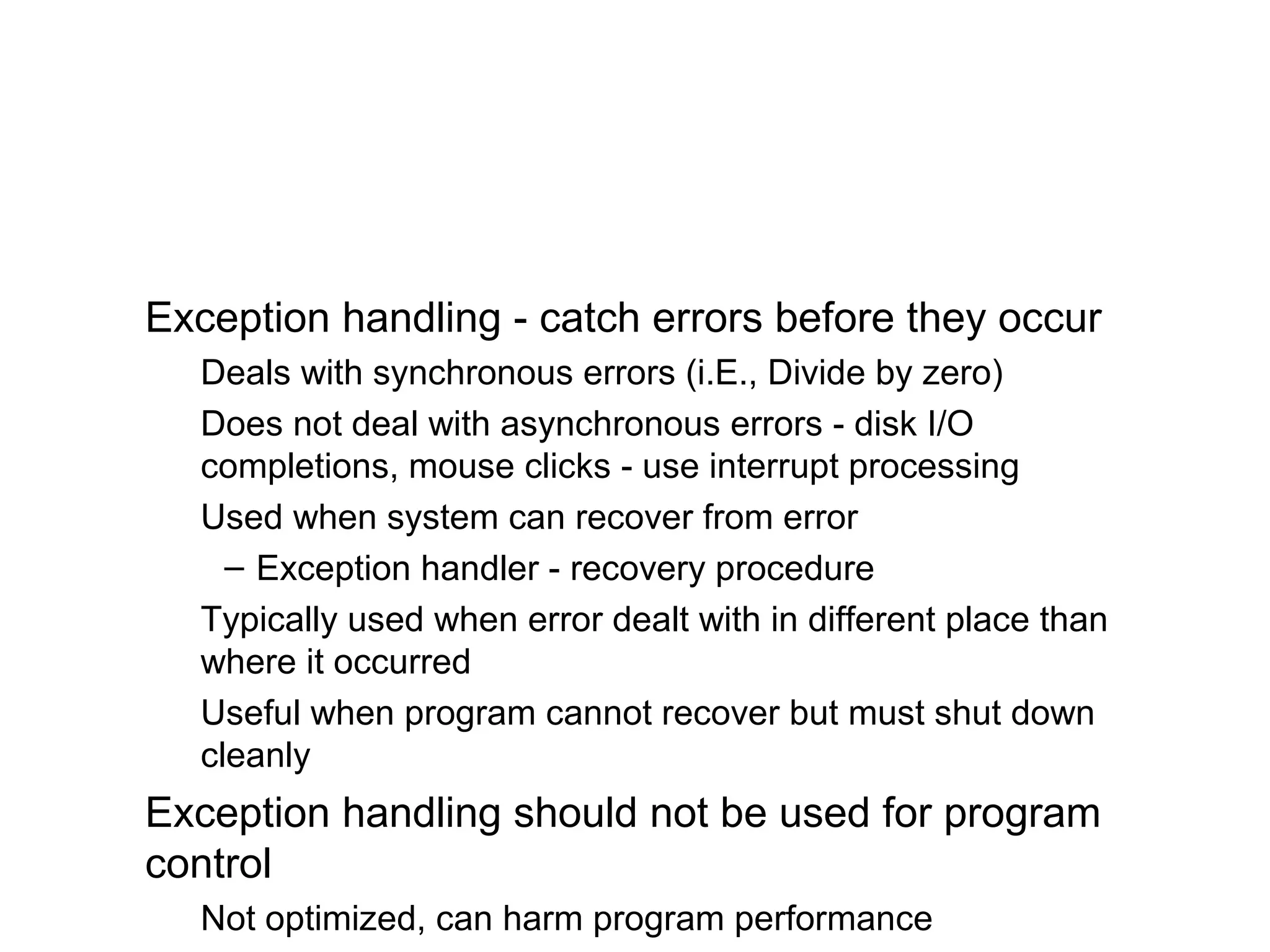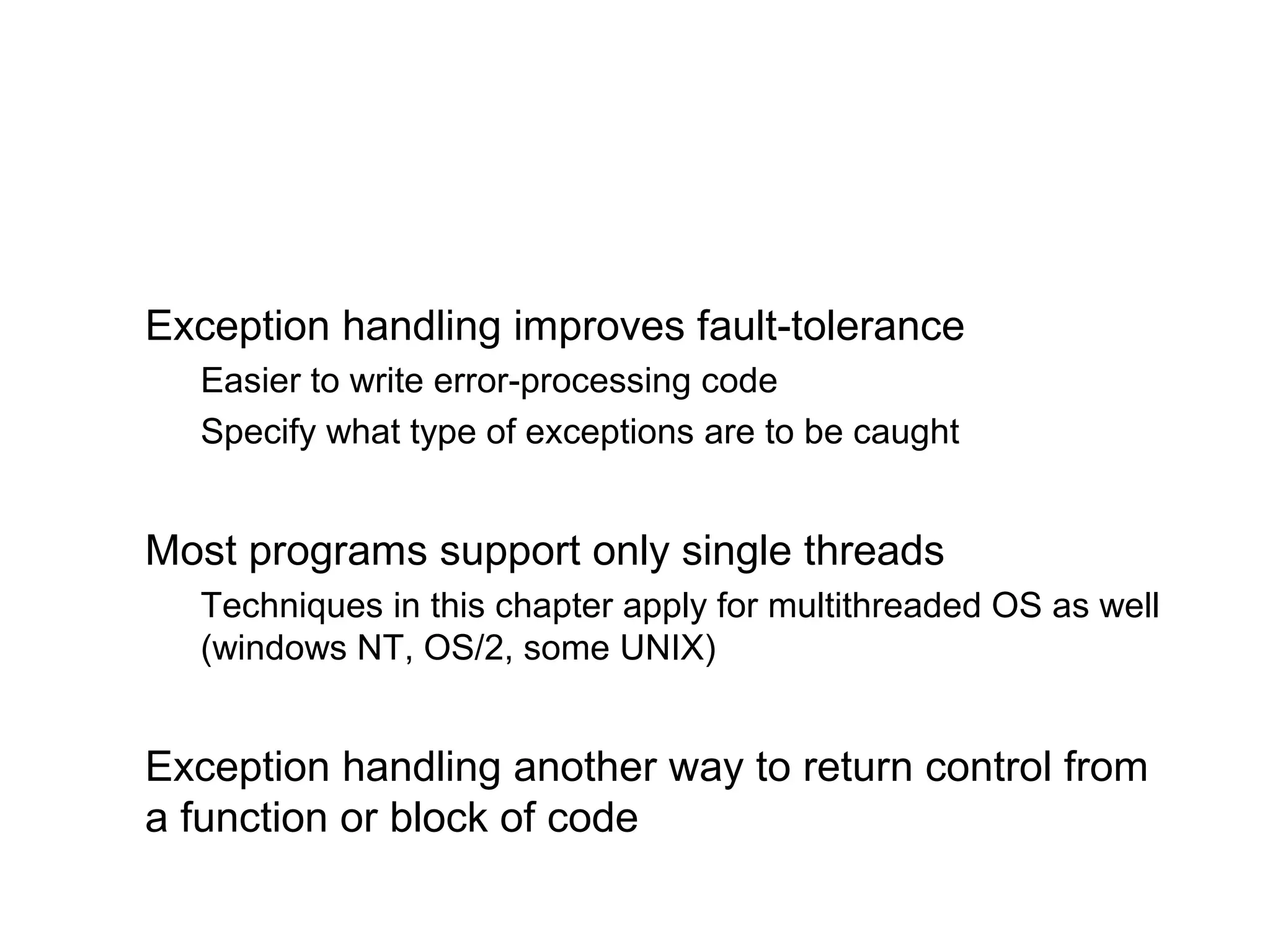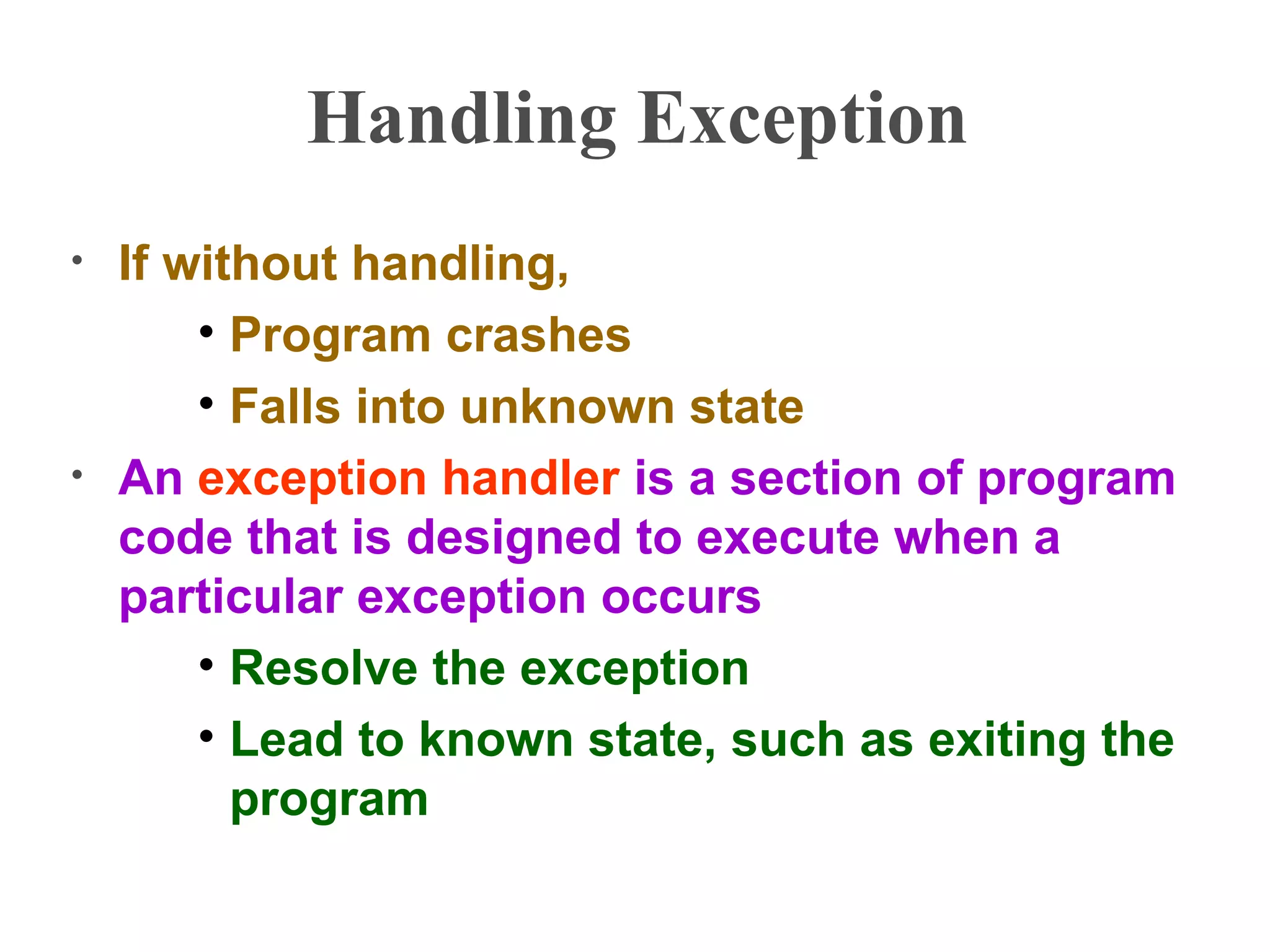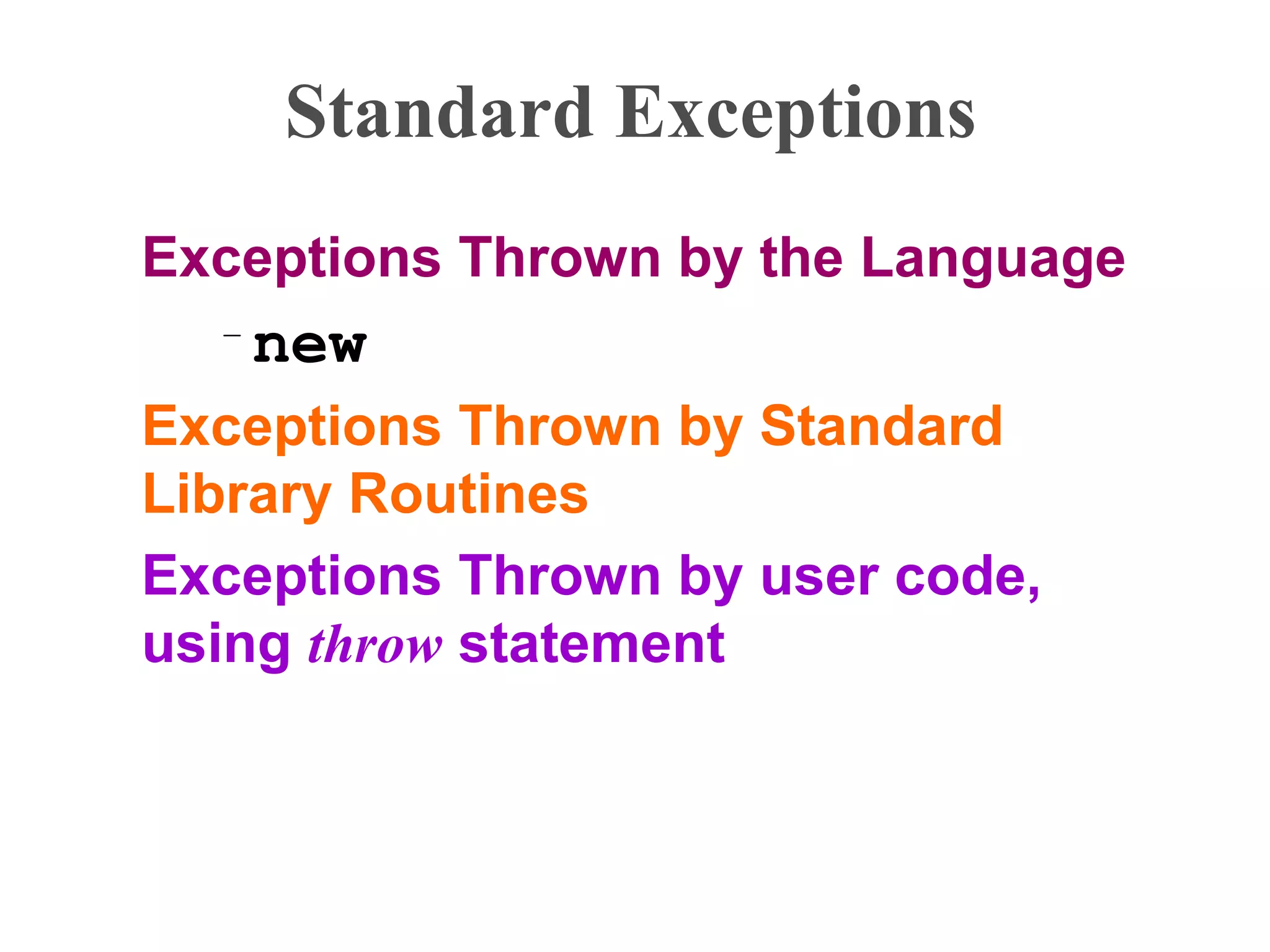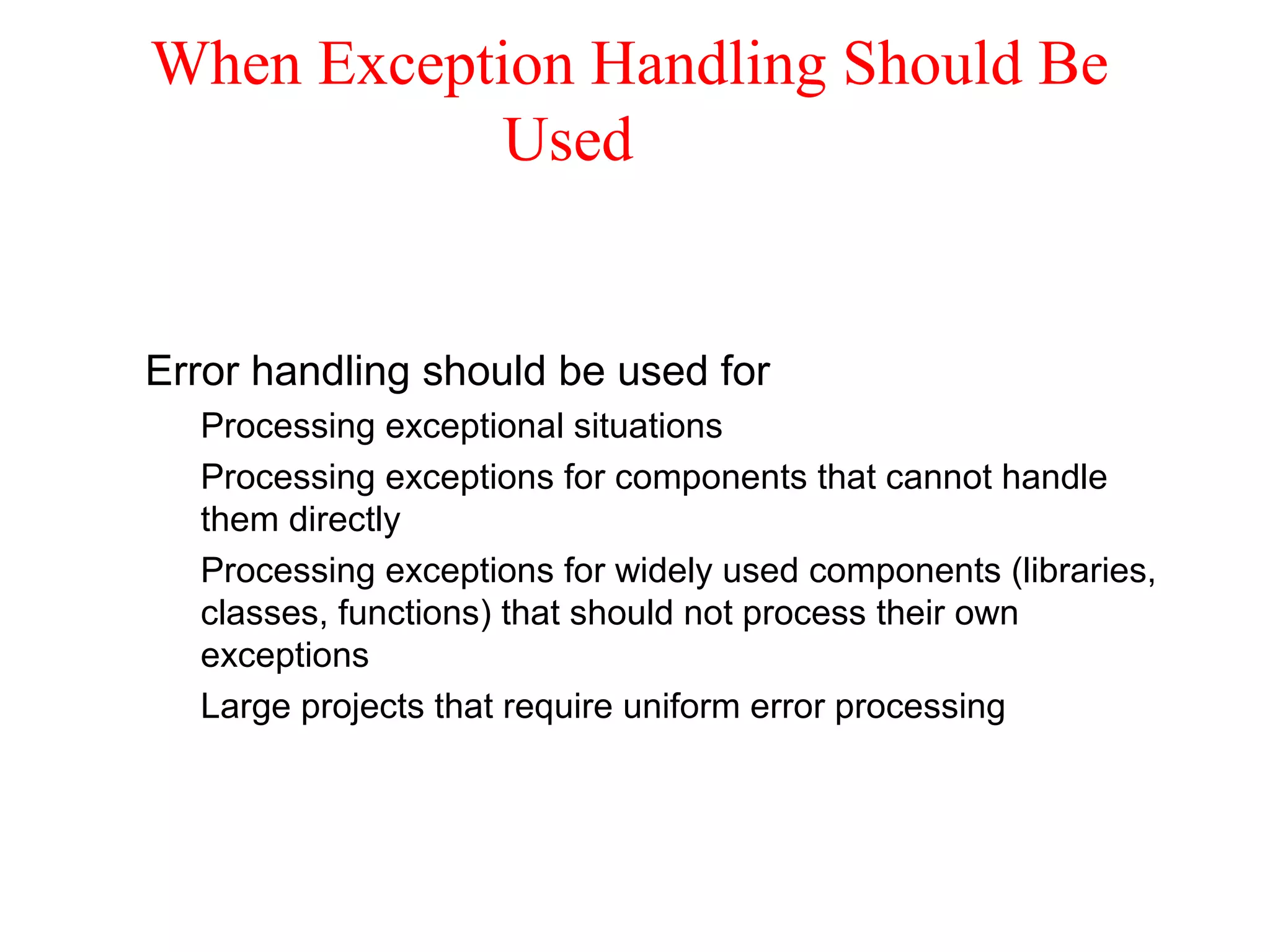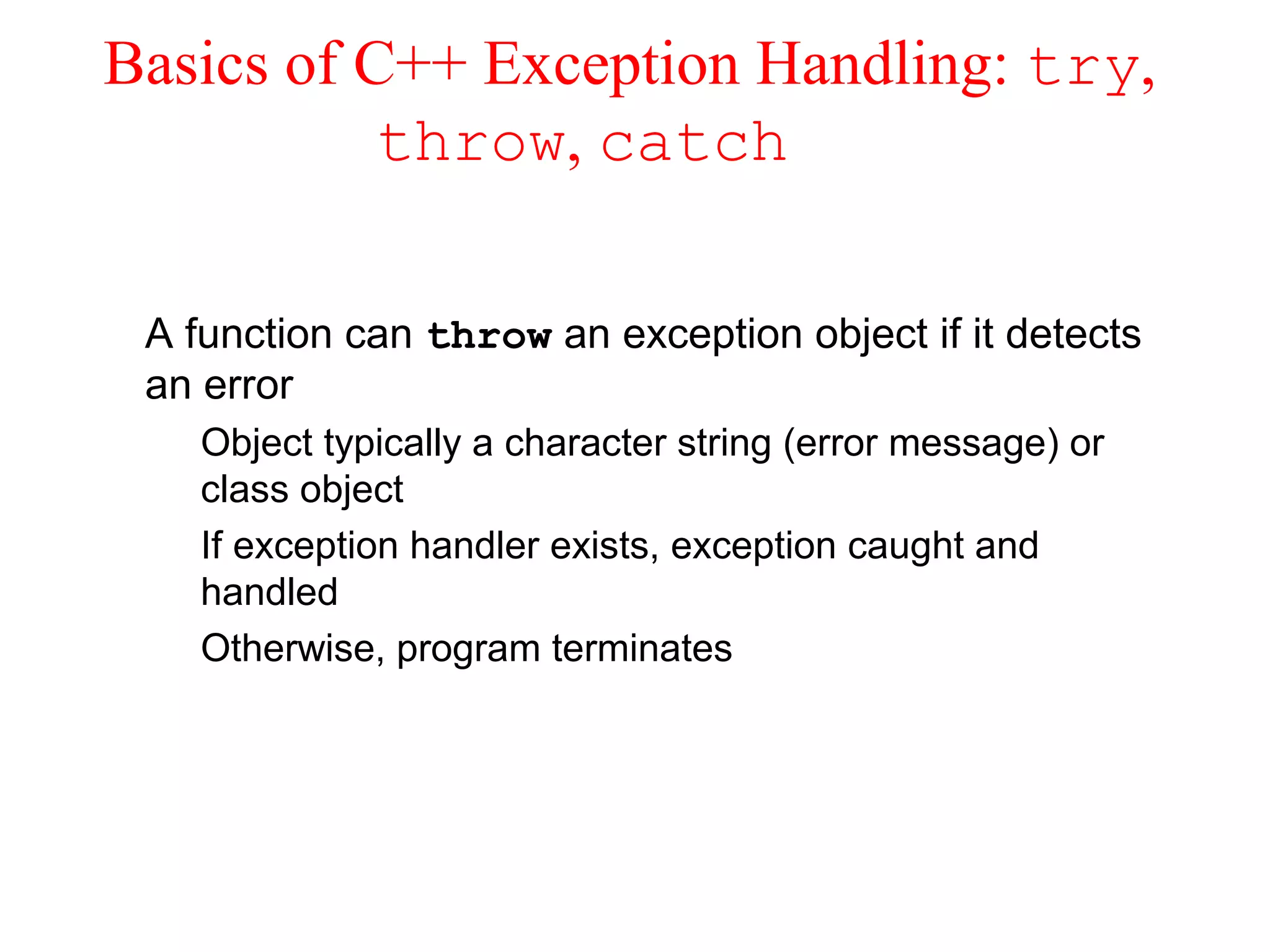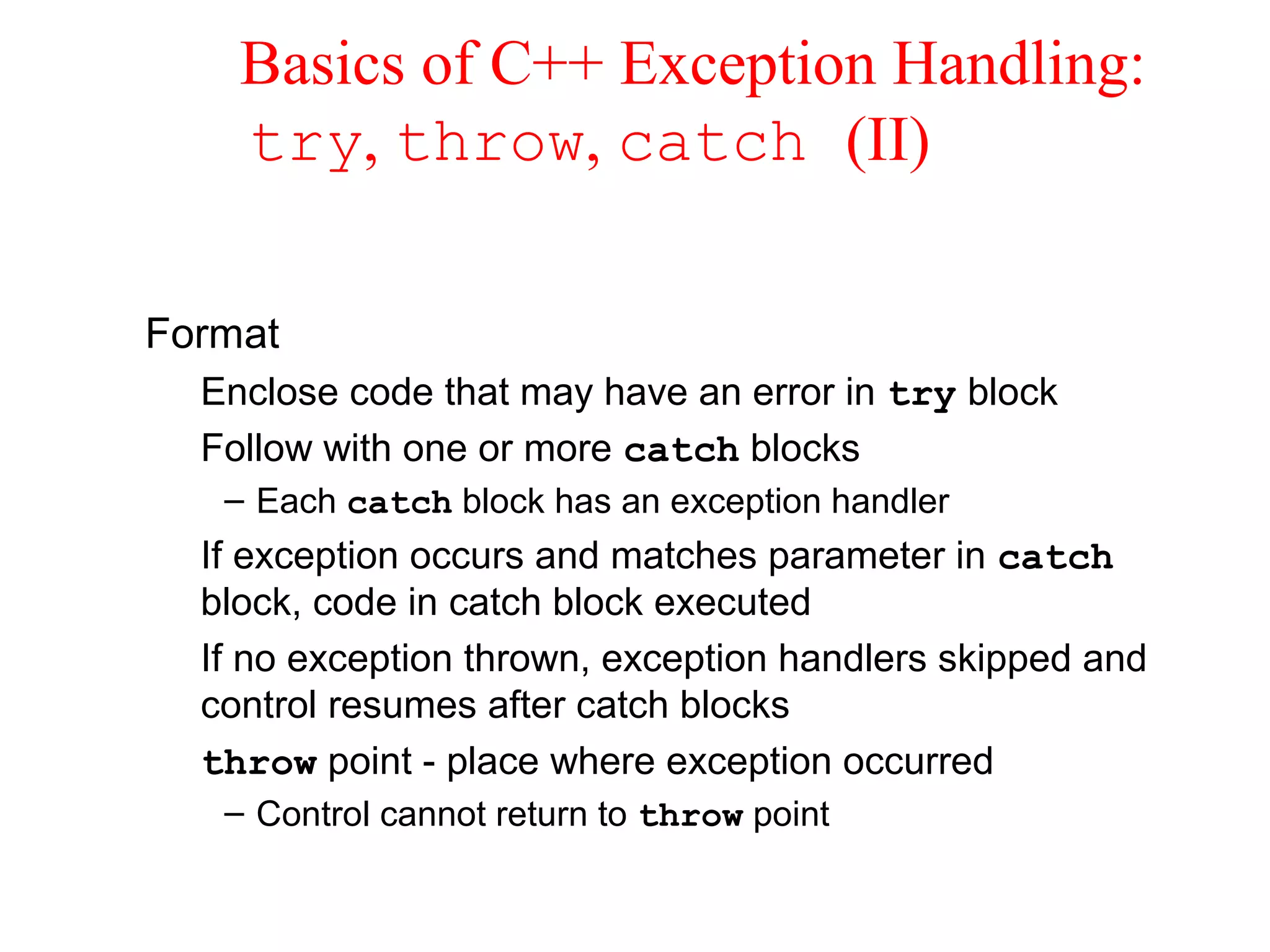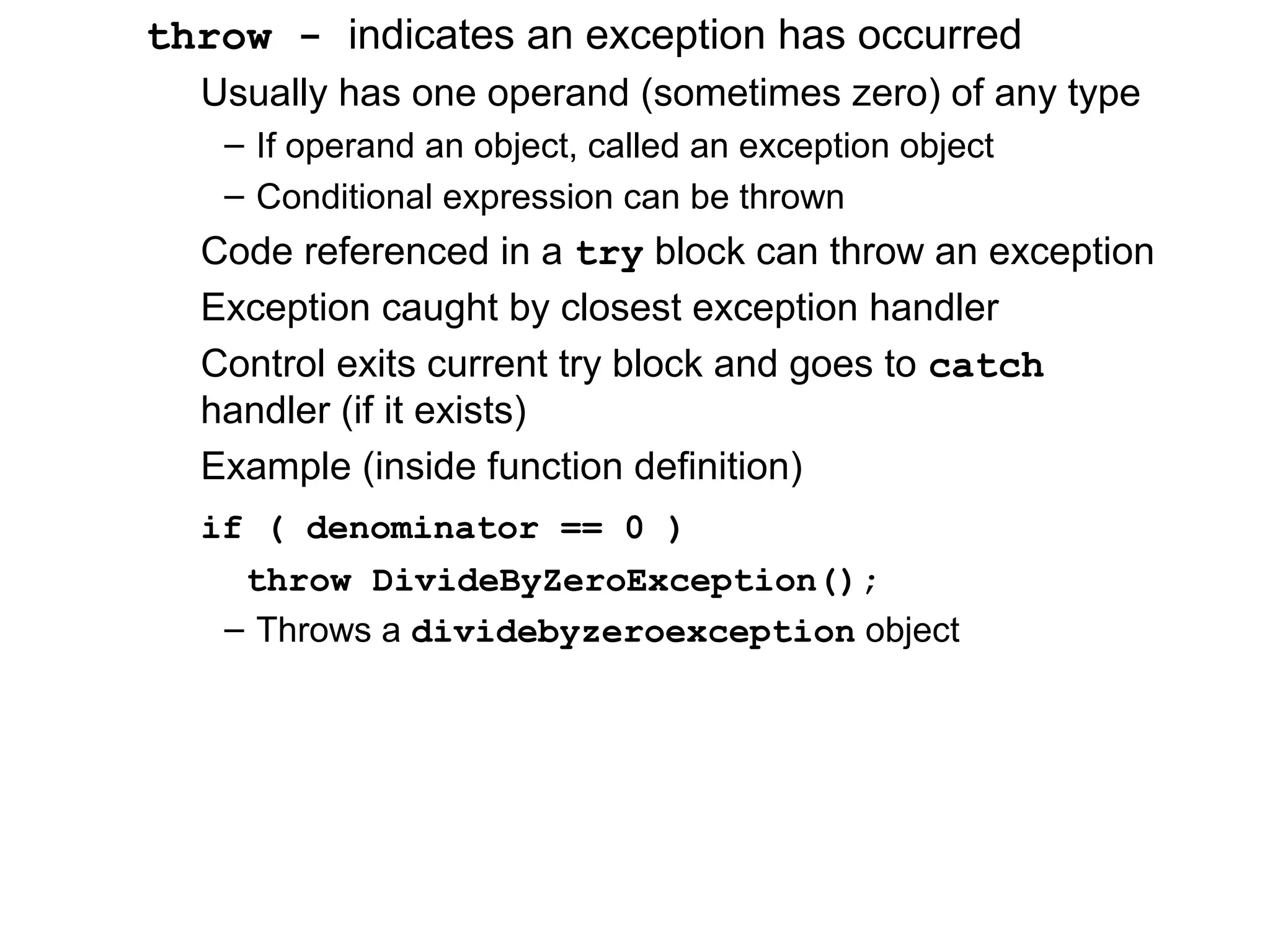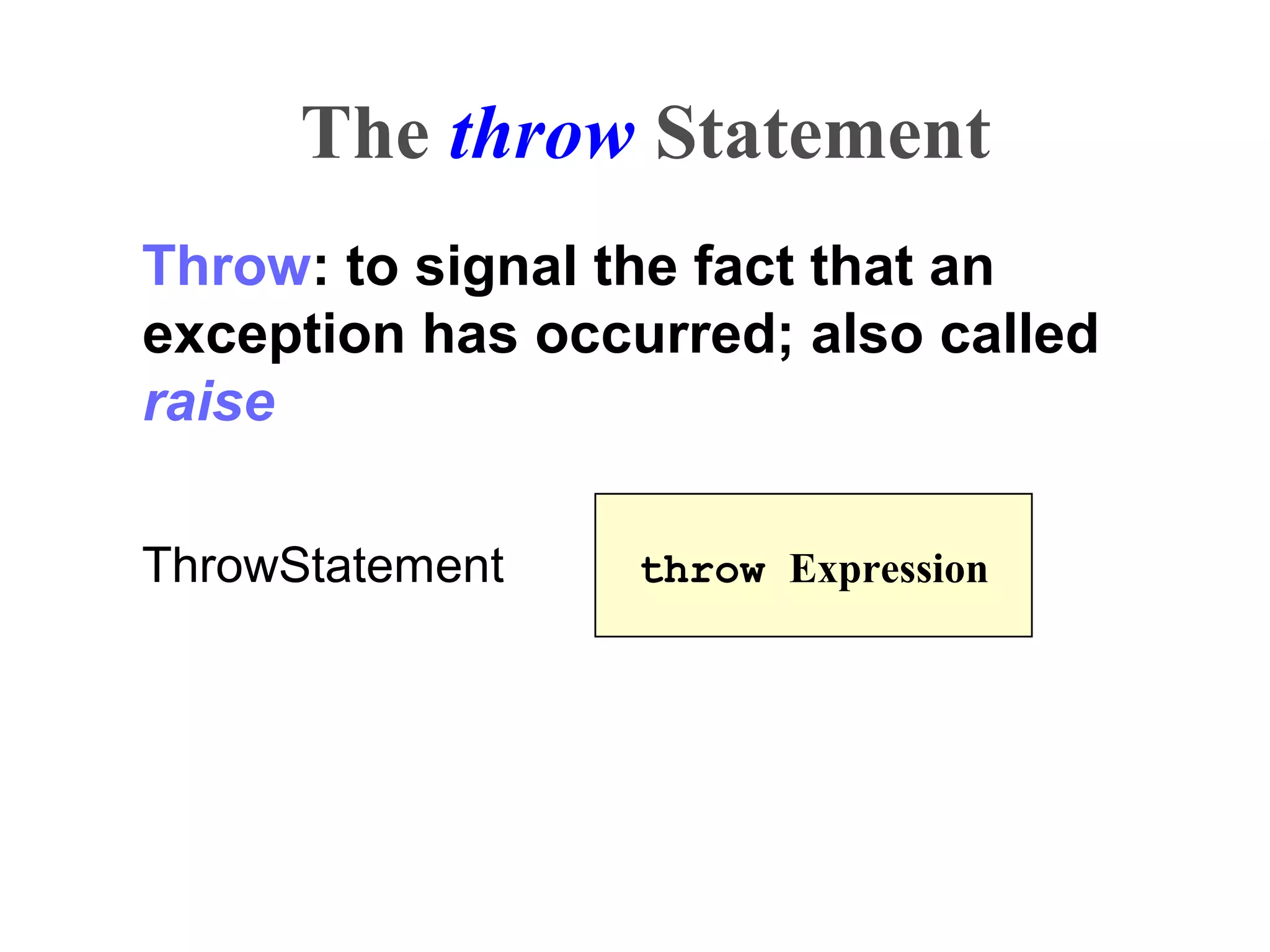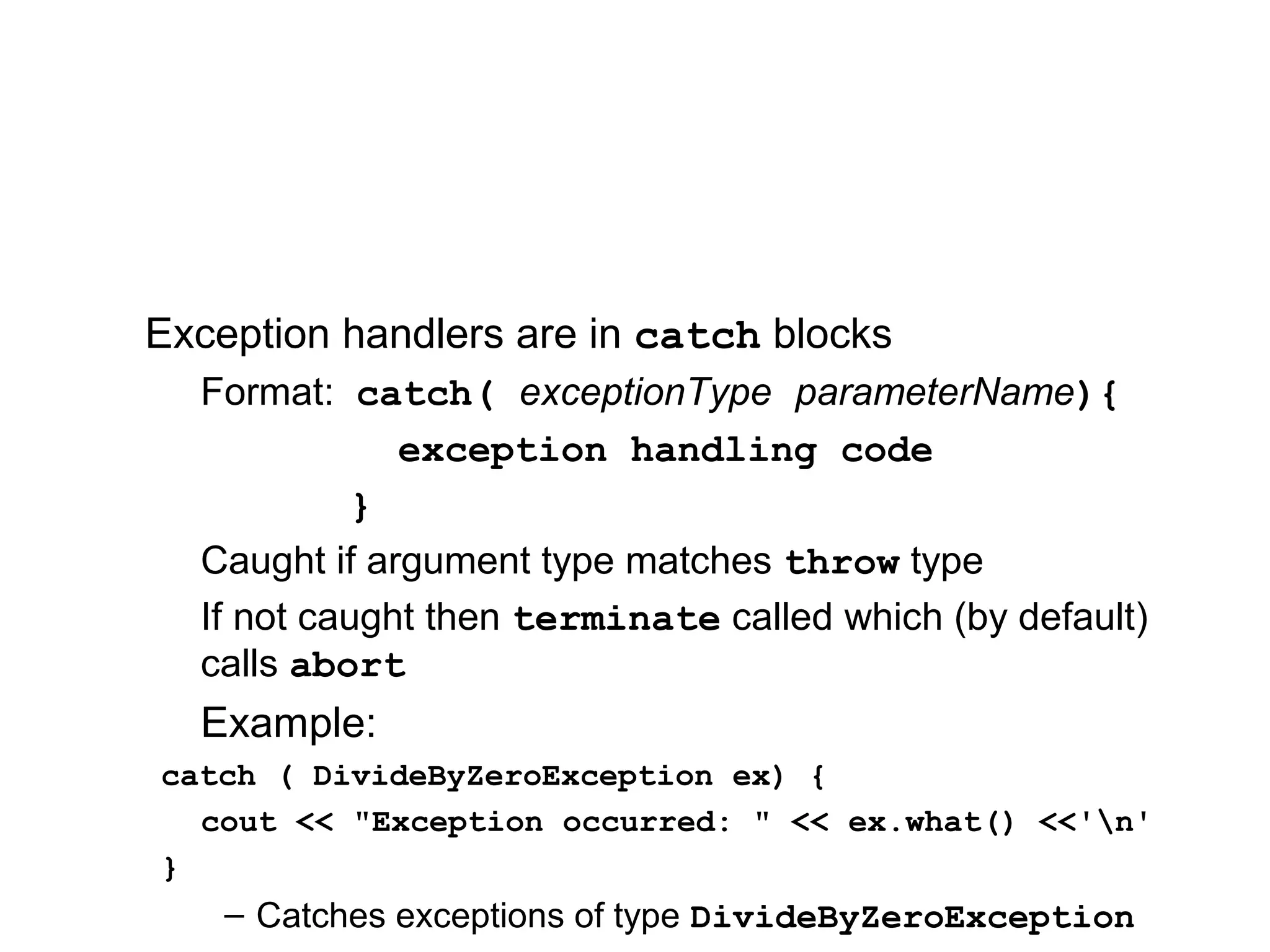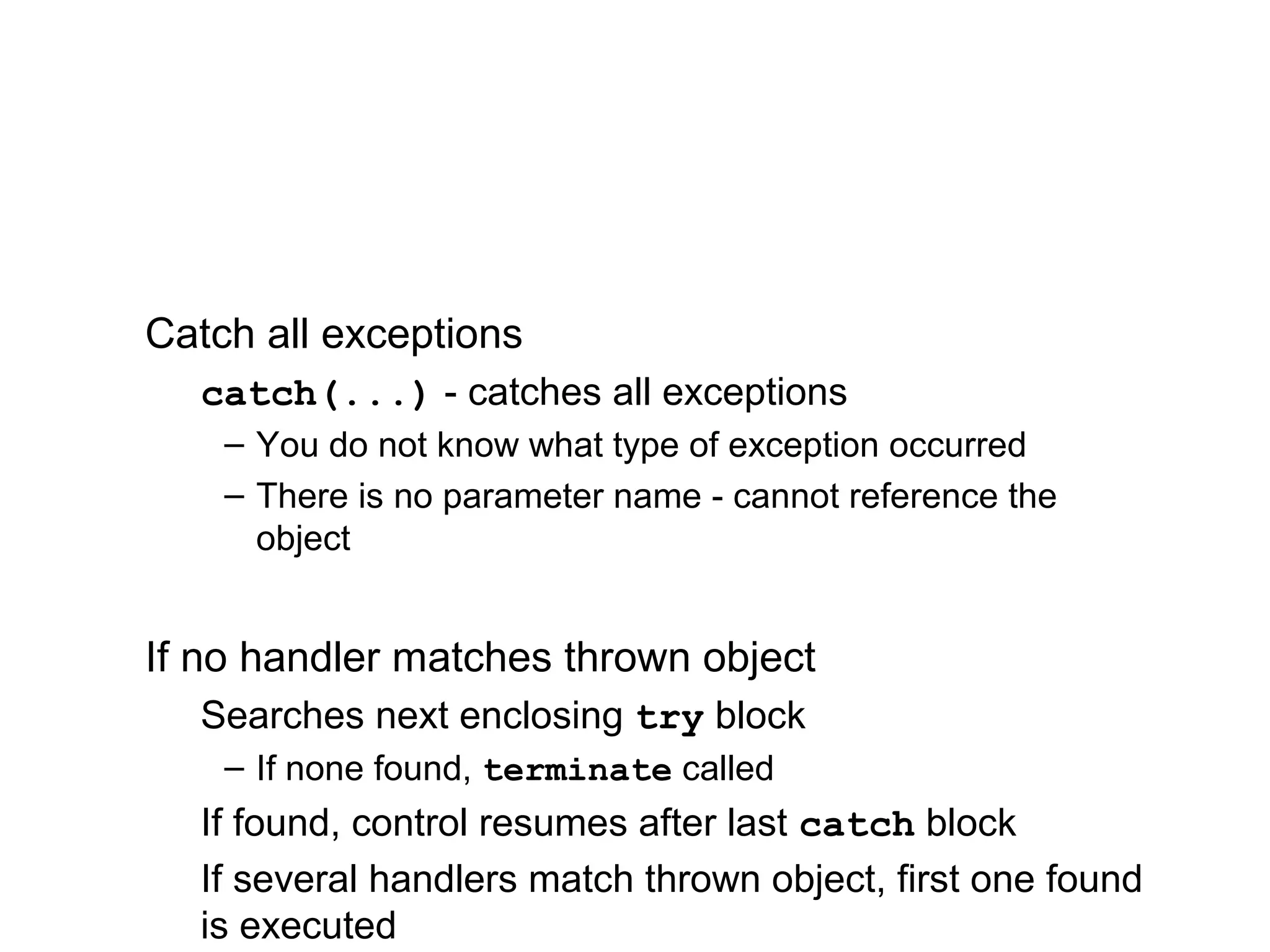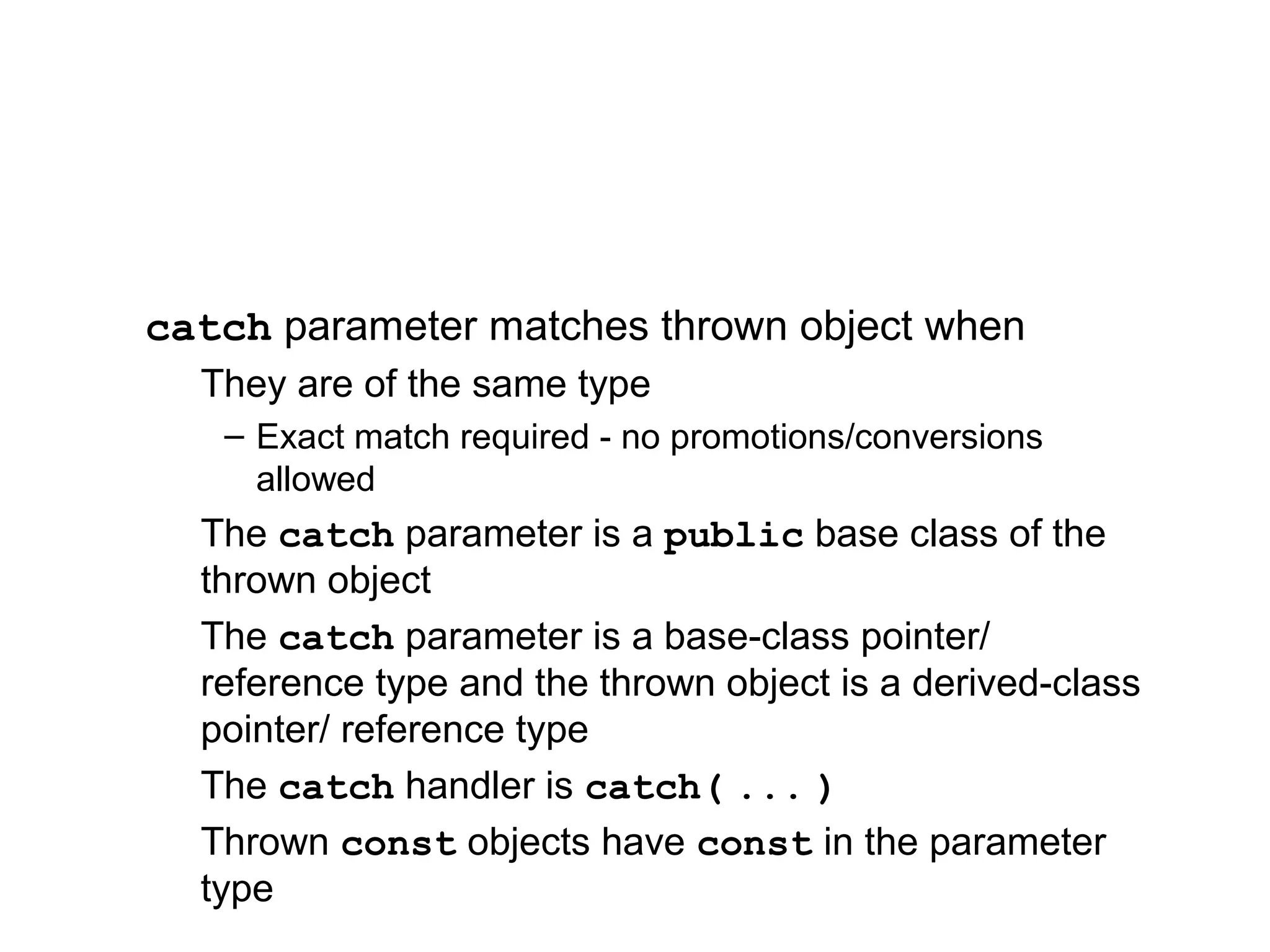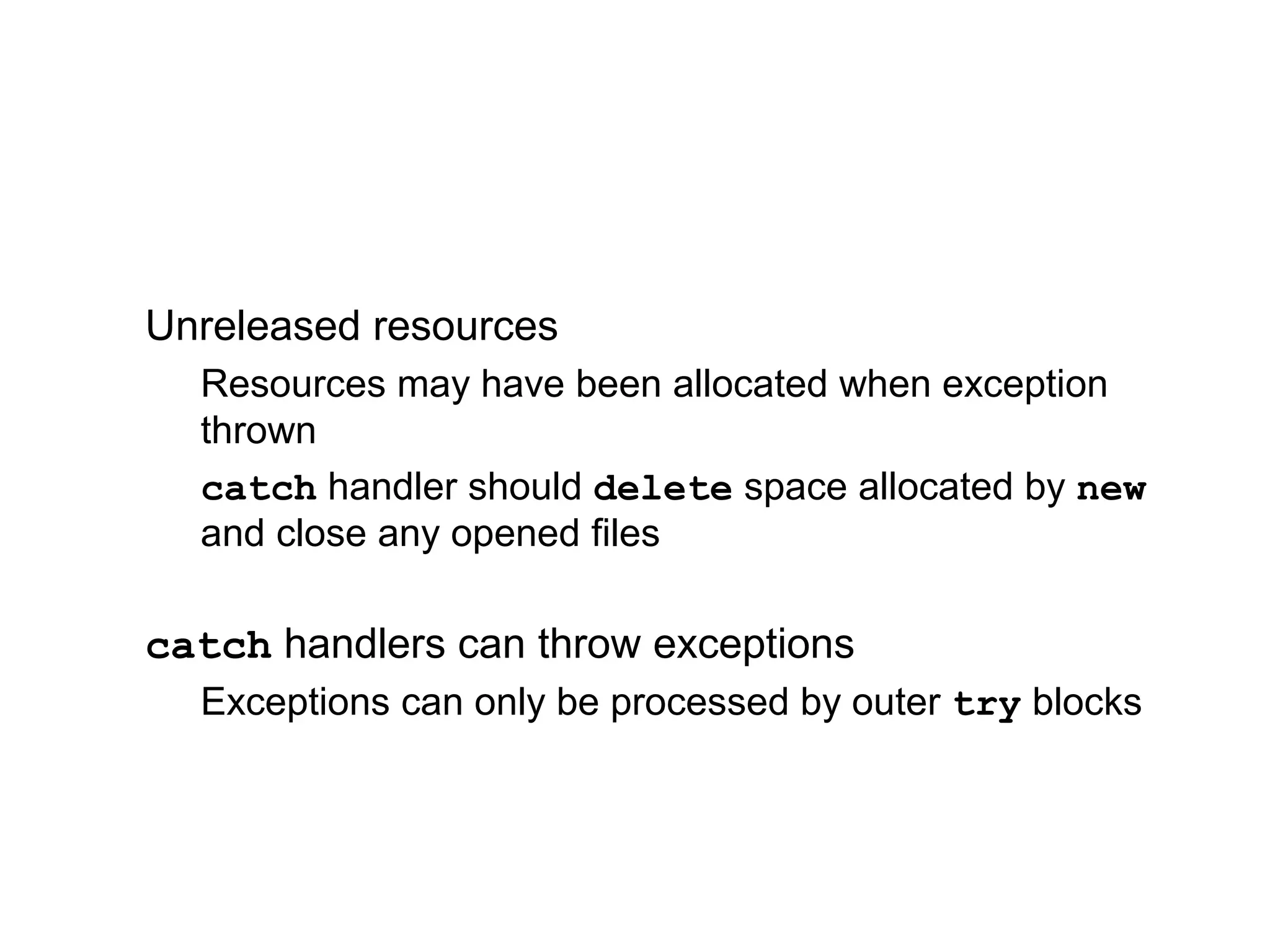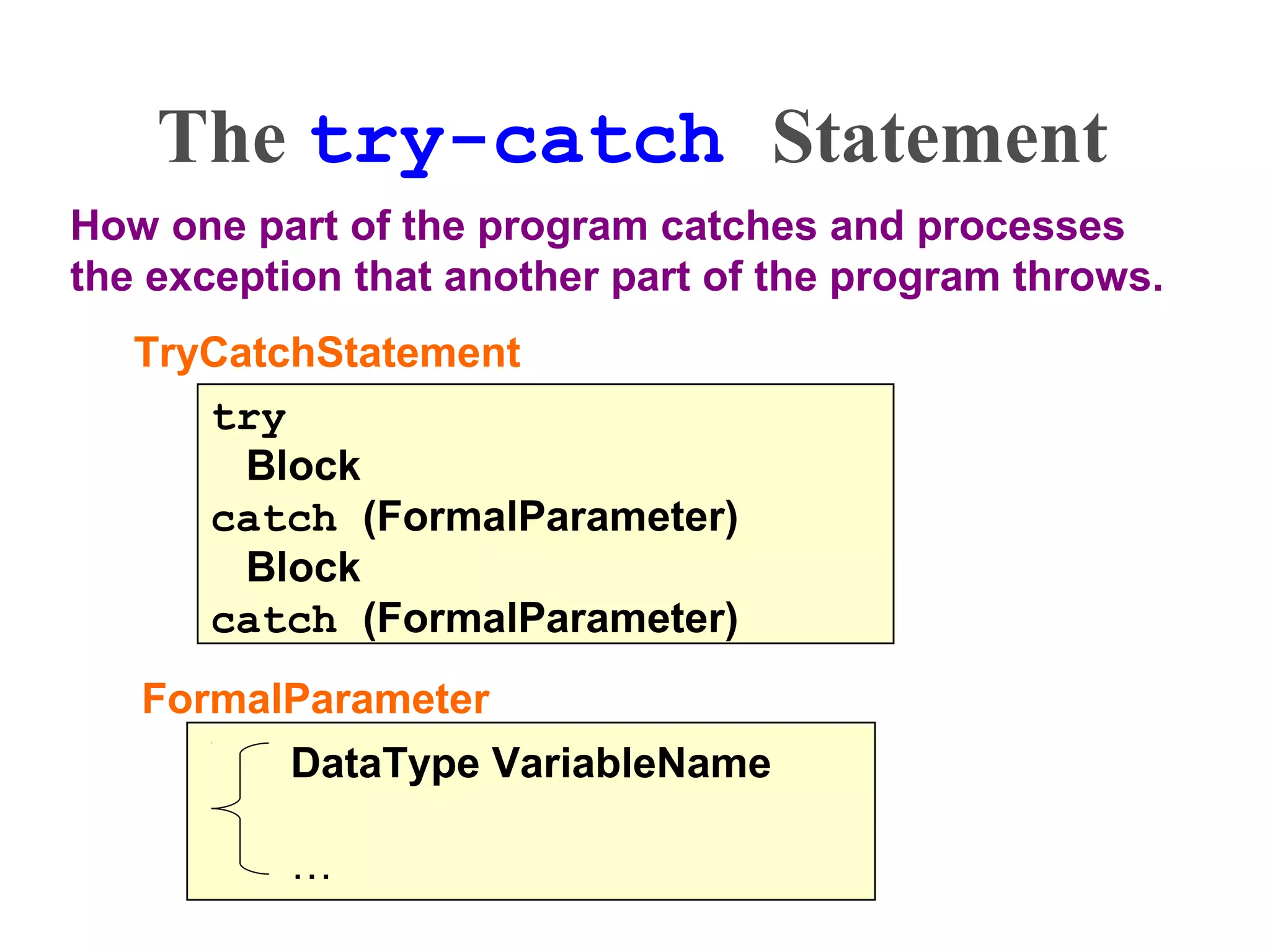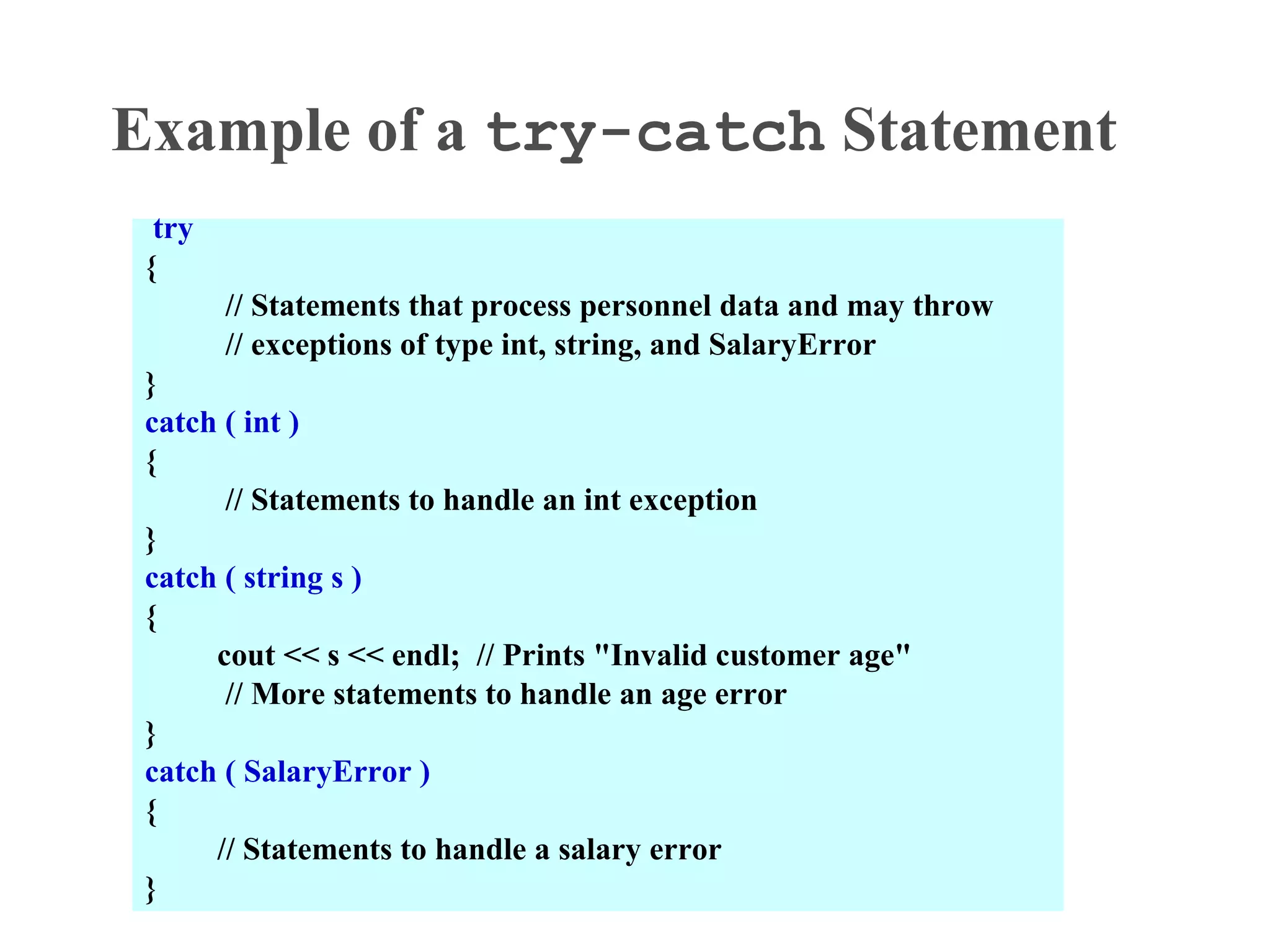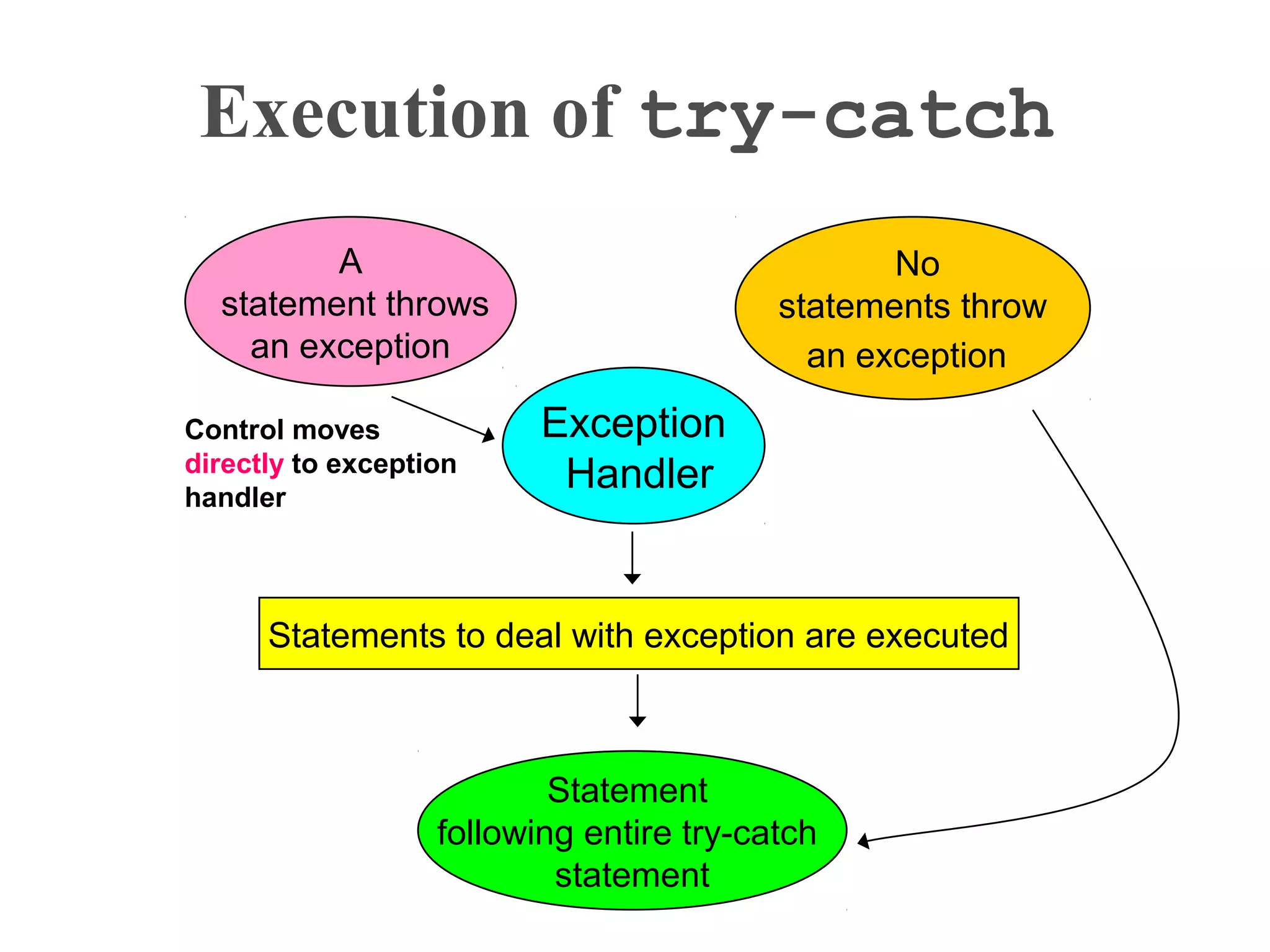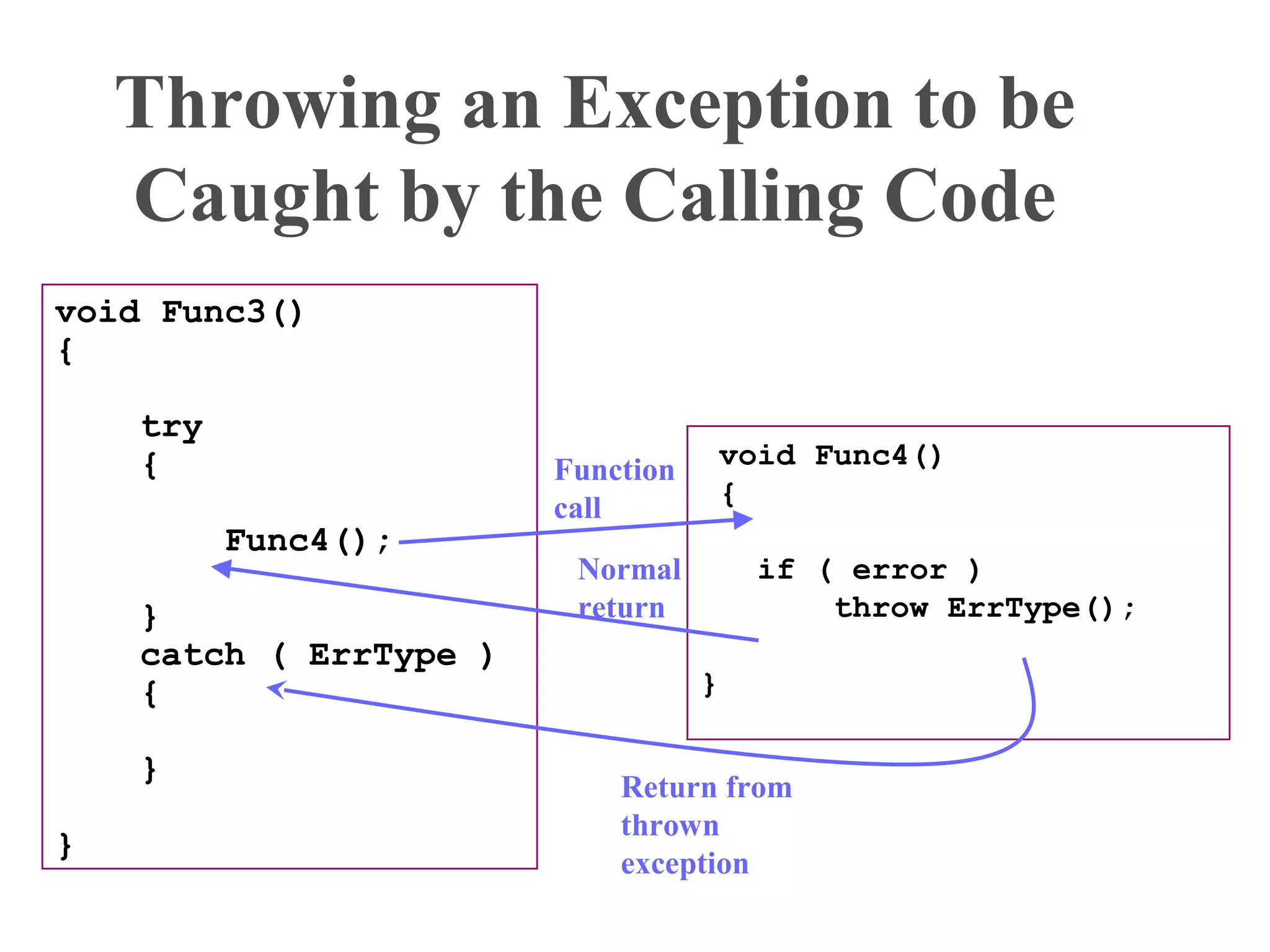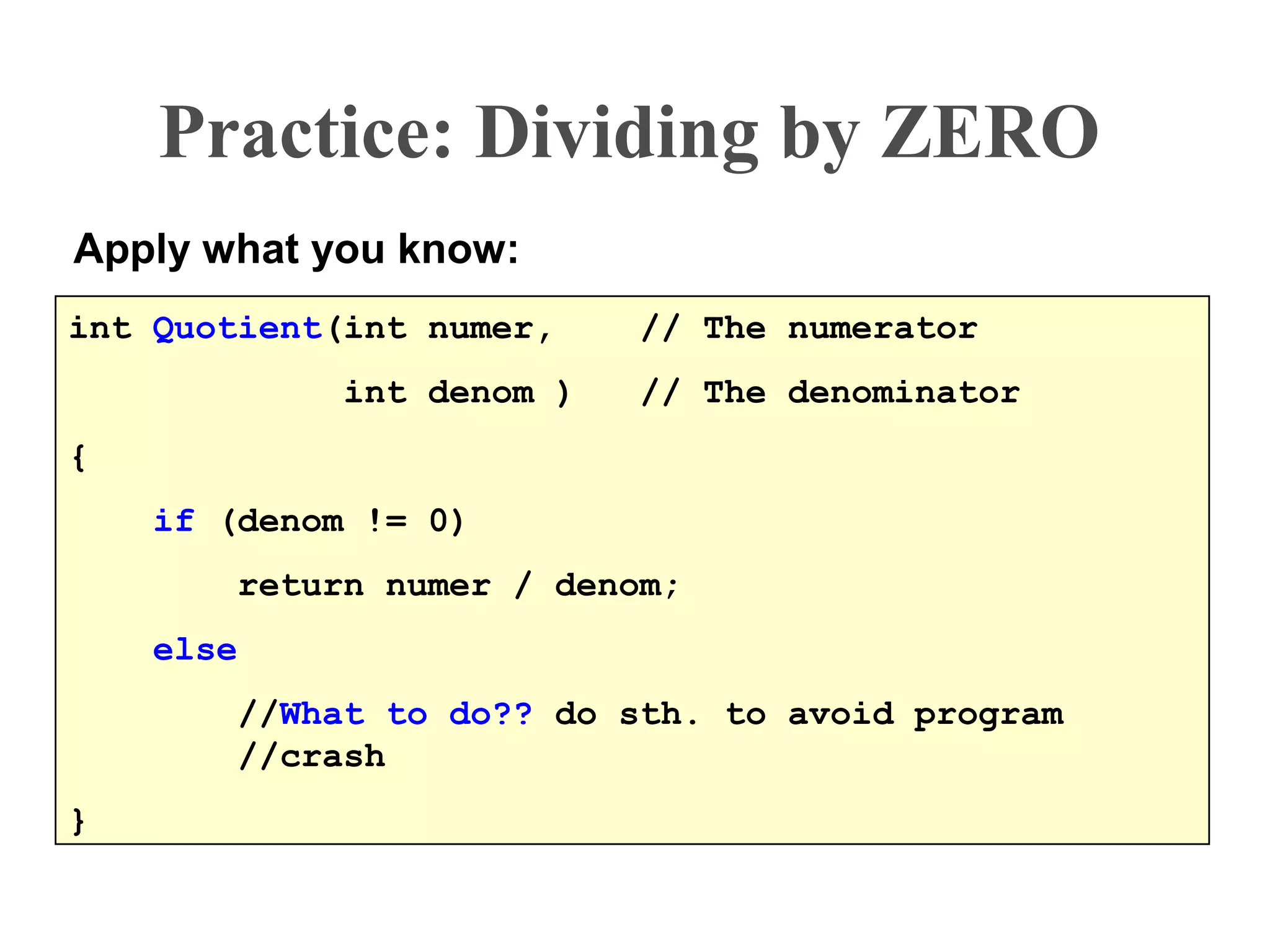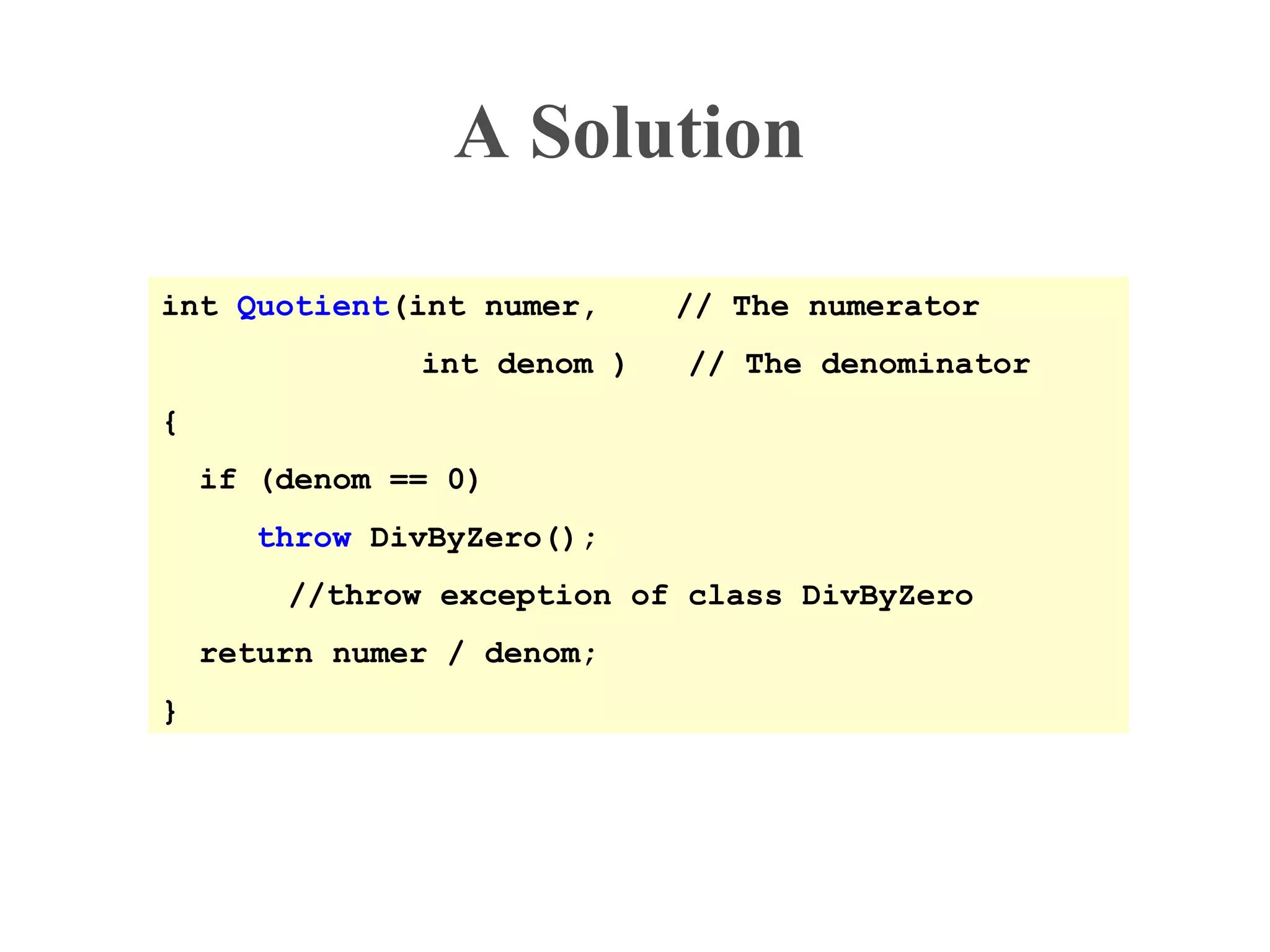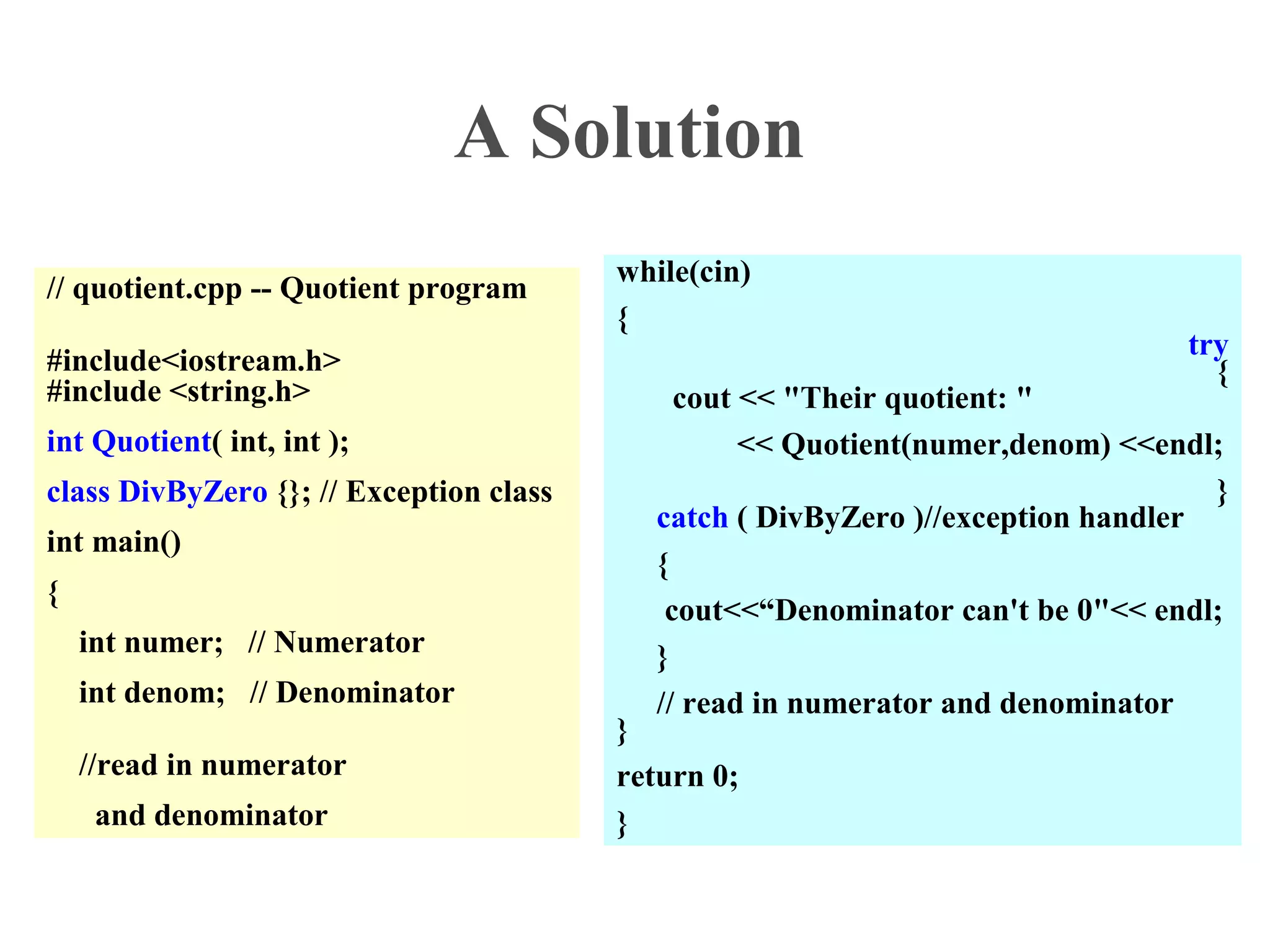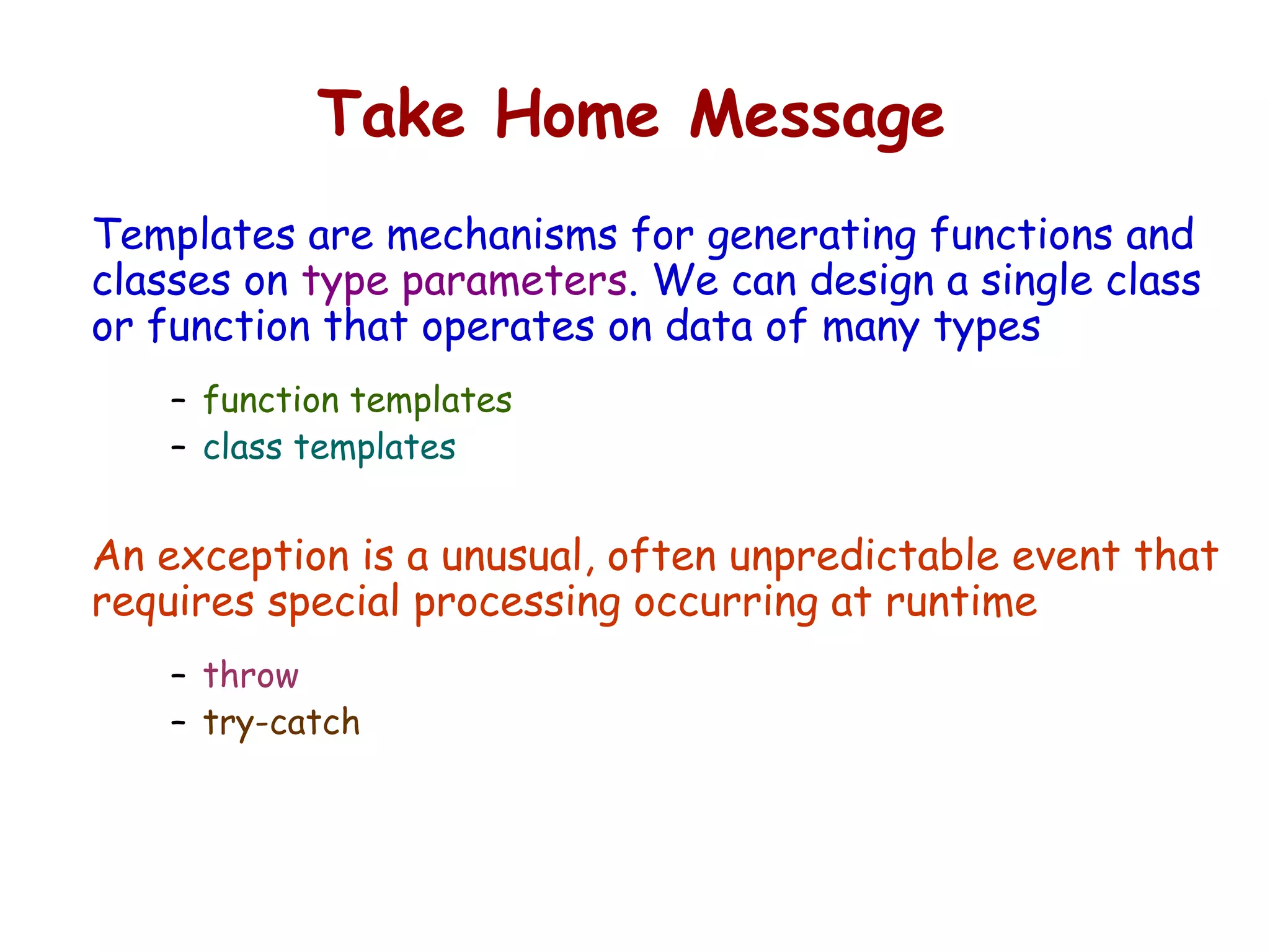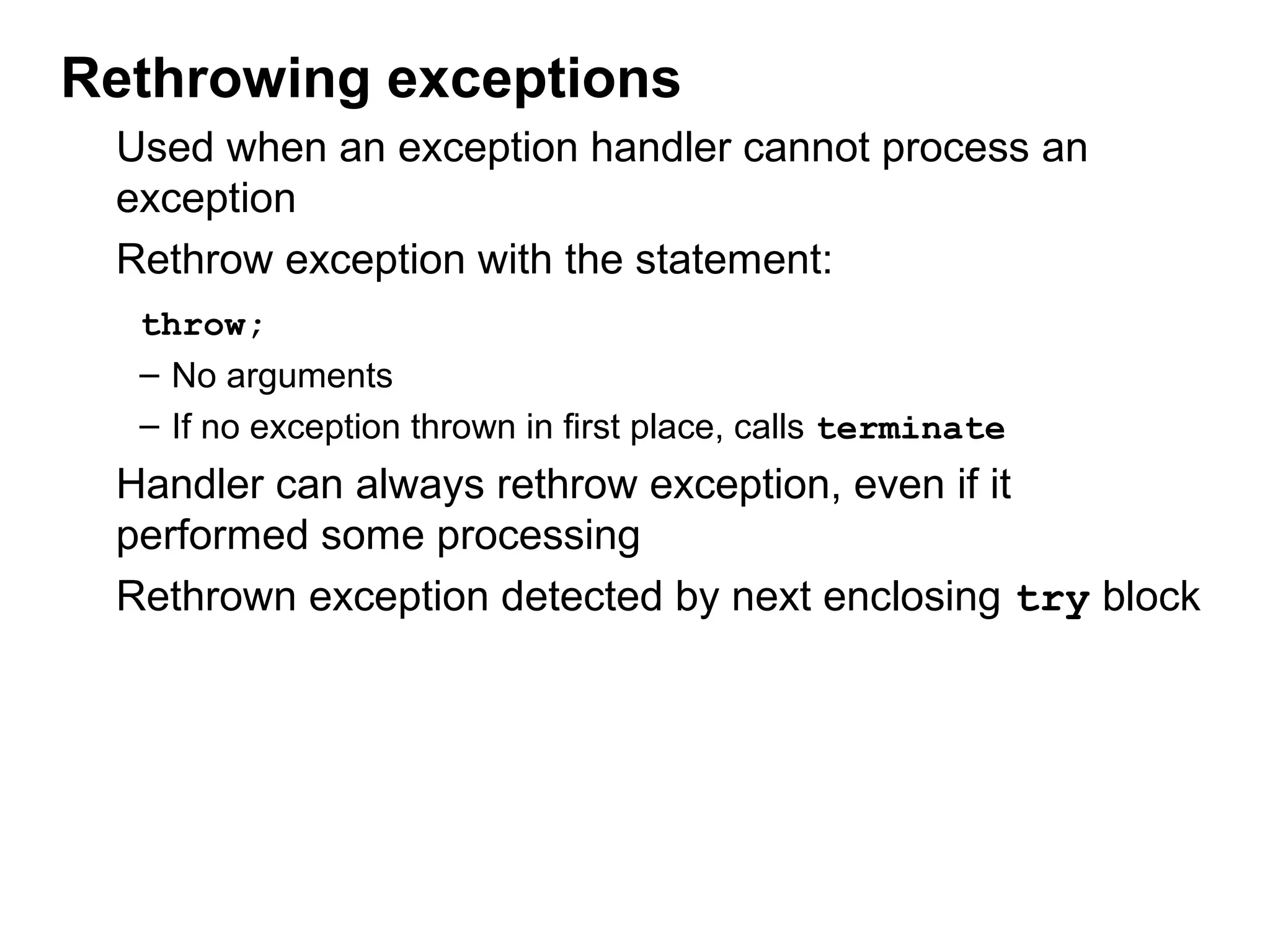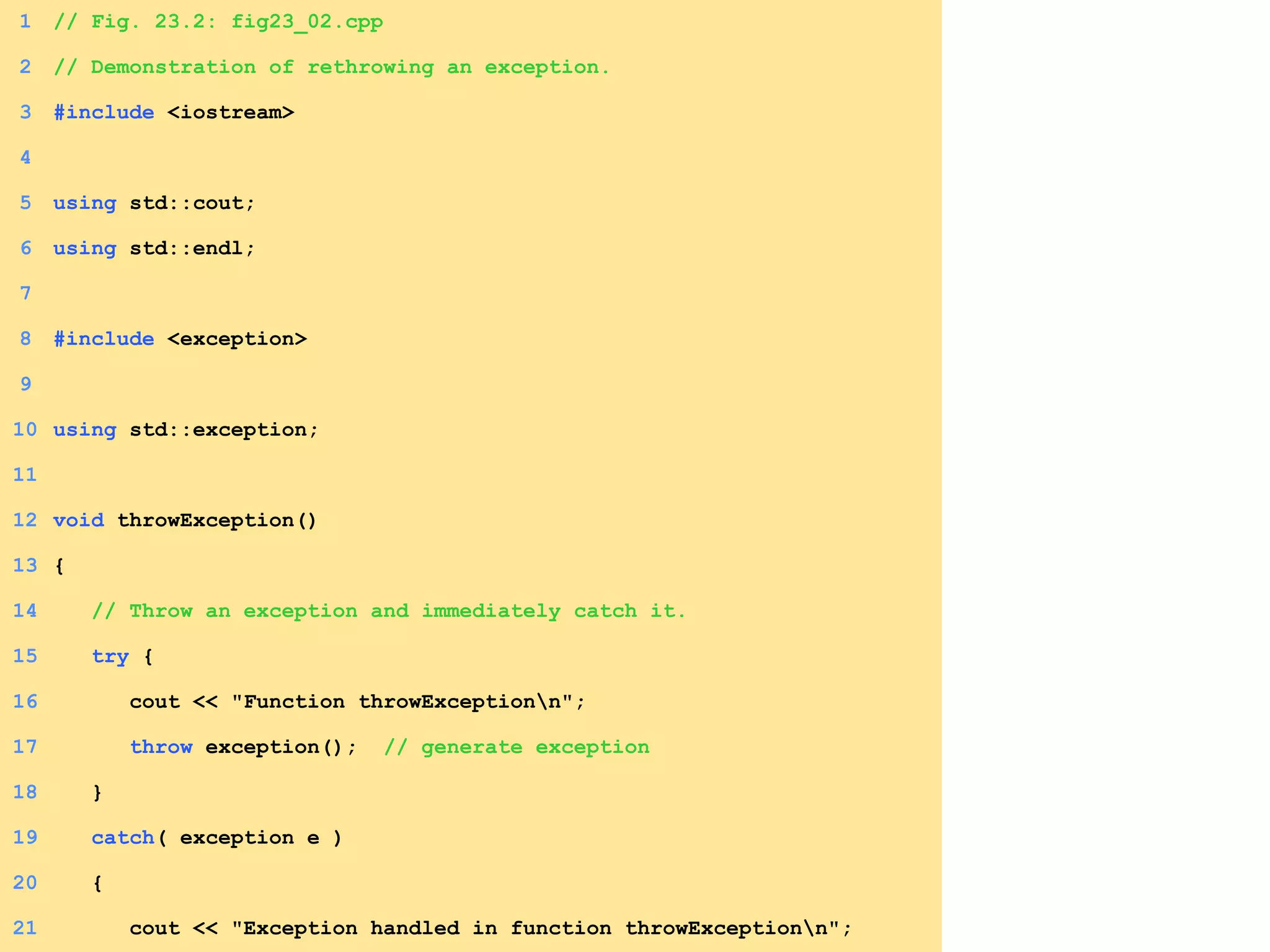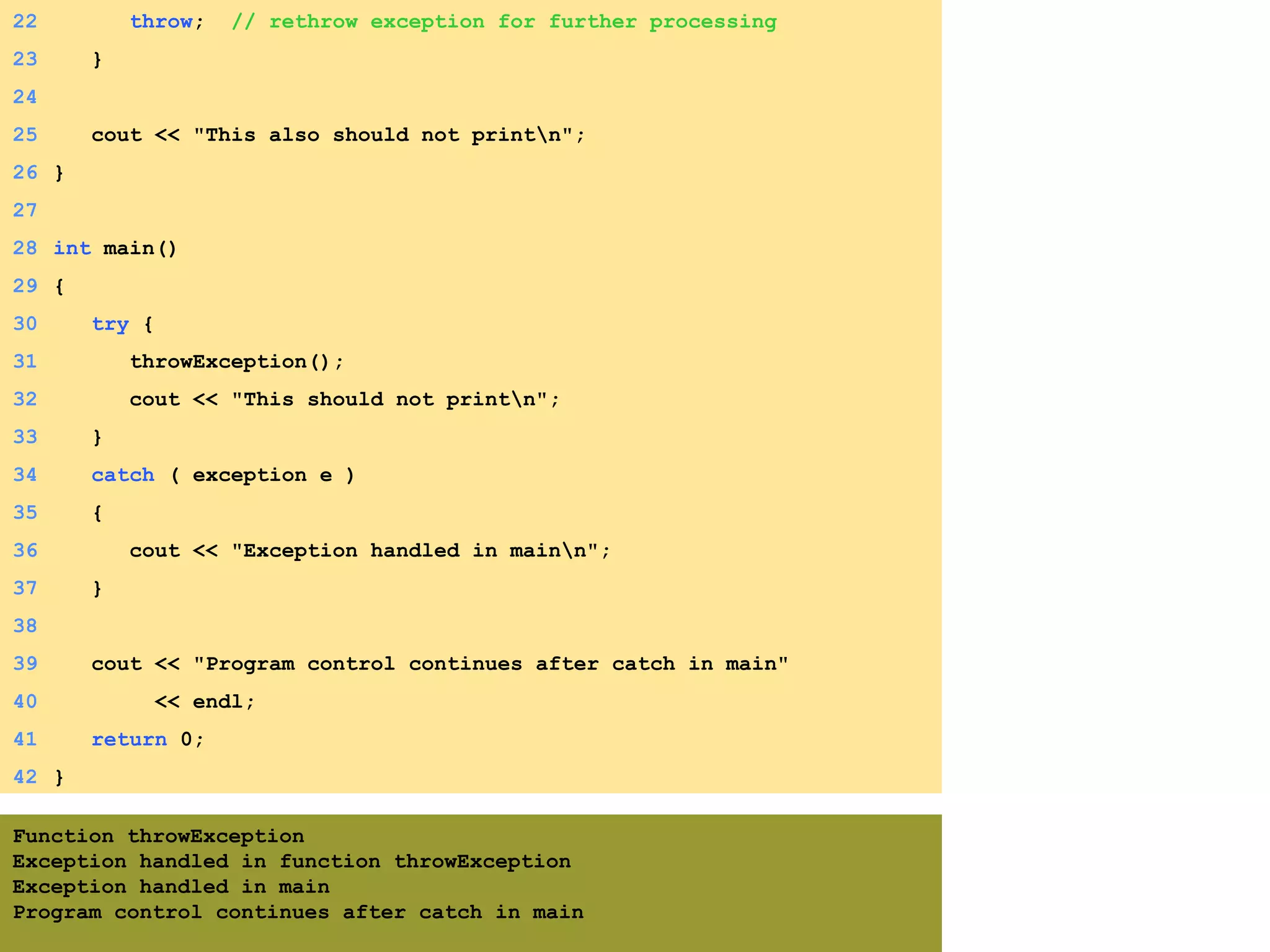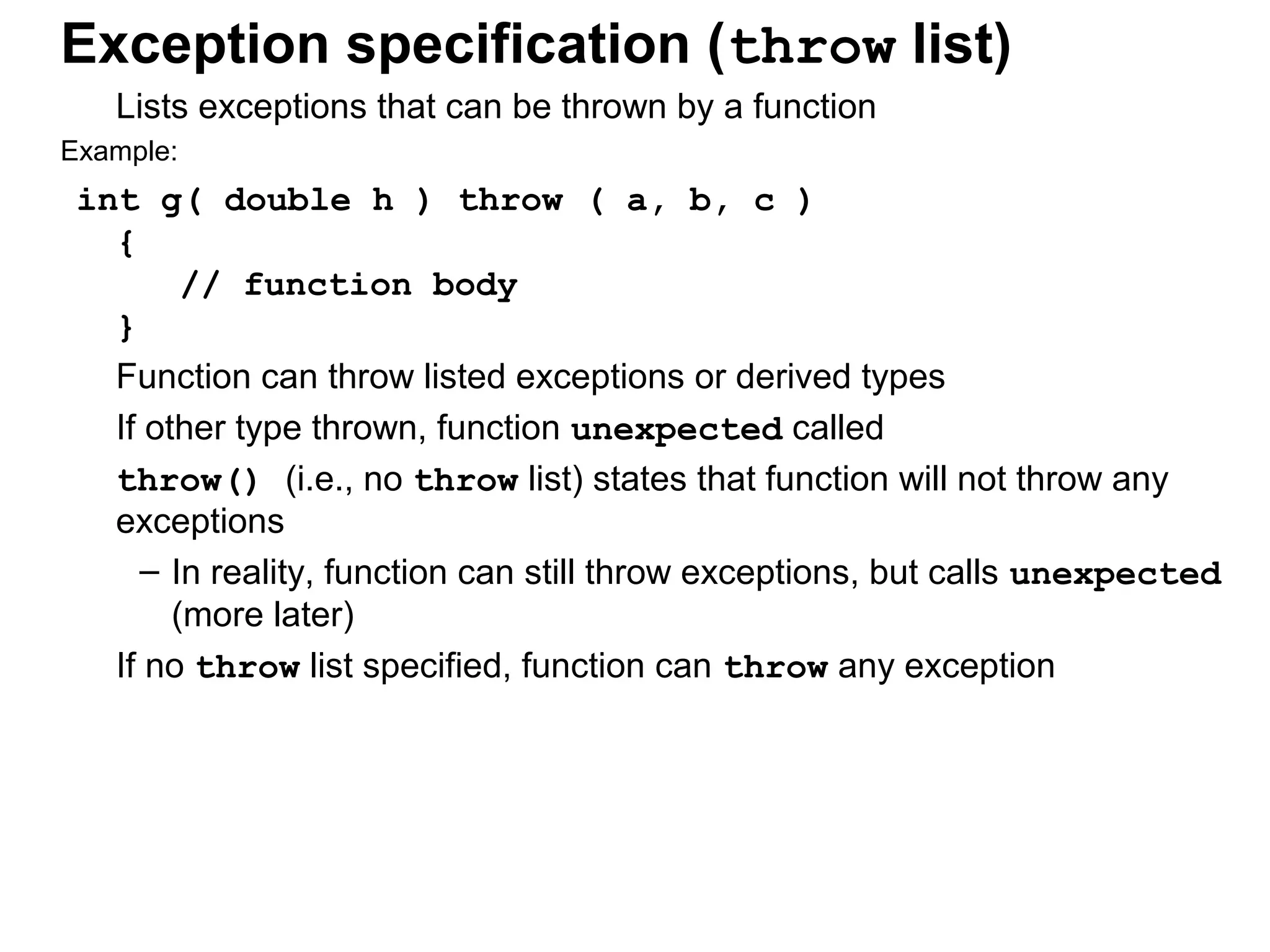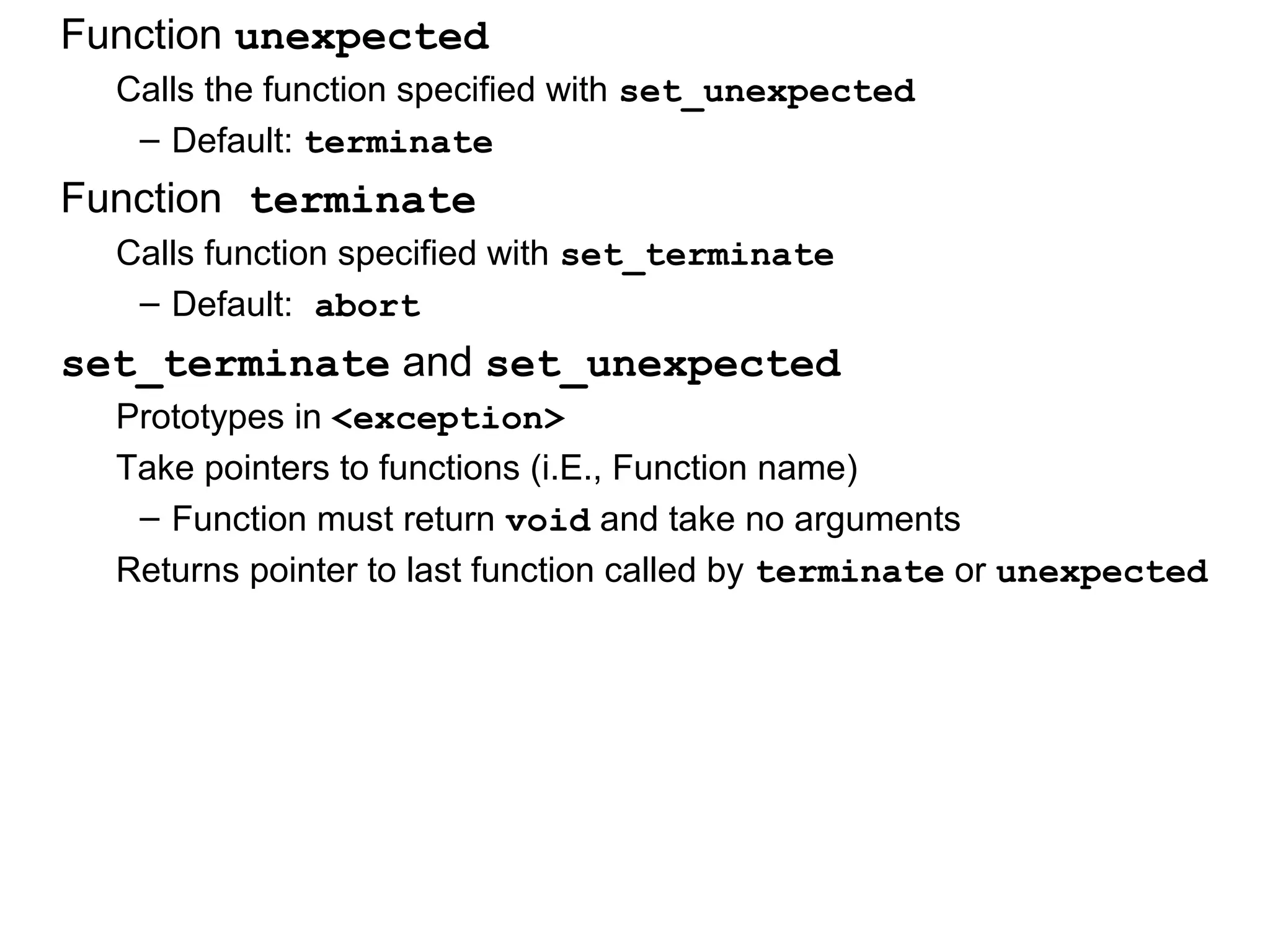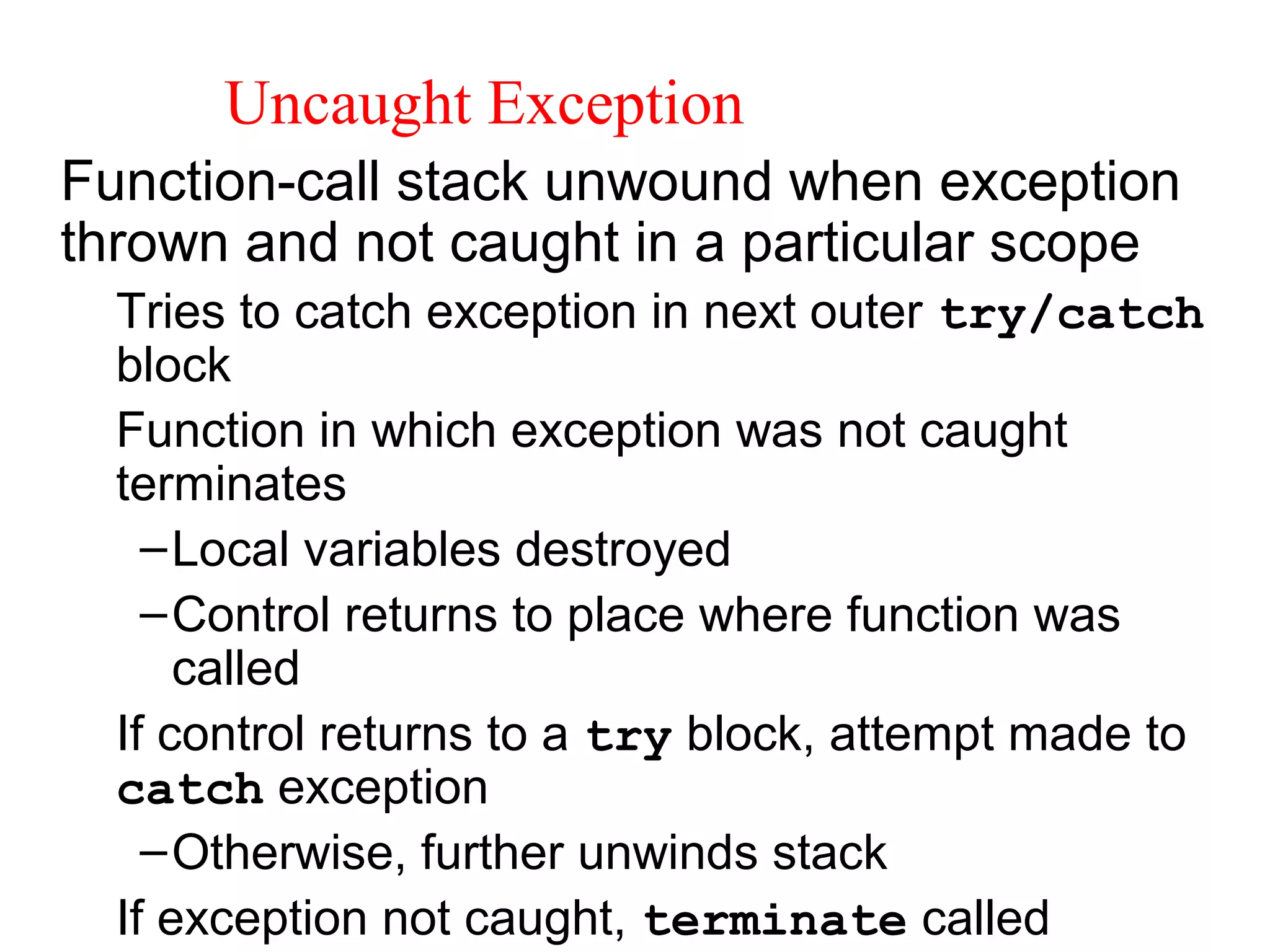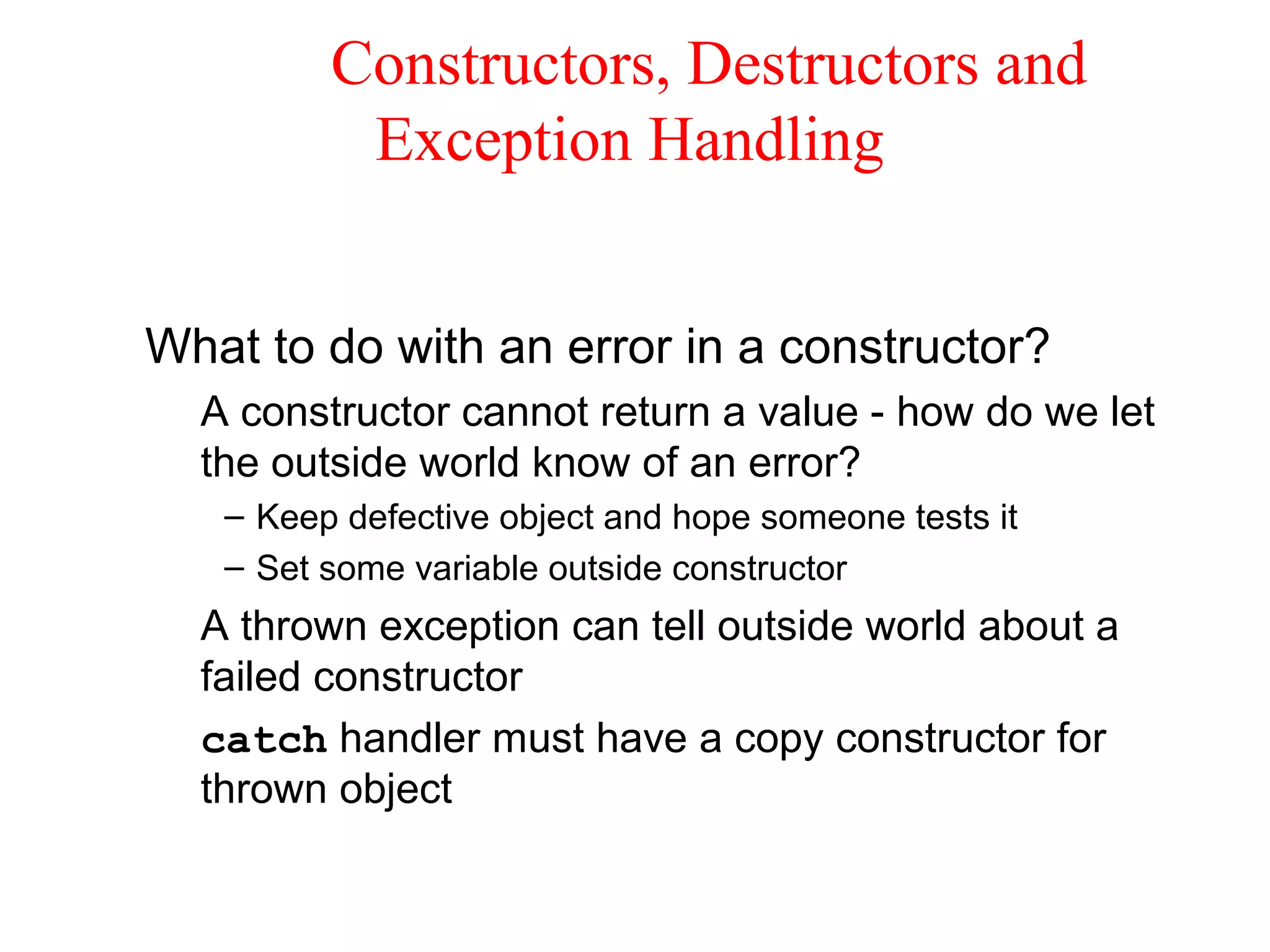The document introduces C++ templates and exceptions. It discusses three approaches to functions that implement identical tasks for different data types: the naïve approach with unique function names, function overloading with the same name, and function templates where the compiler generates individual functions. It also covers class templates where the compiler generates distinct class types, and how to instantiate class and function templates by substituting the template argument. Finally, it discusses exception handling in C++ using try, throw, catch blocks to handle errors and exceptions thrown during program execution.
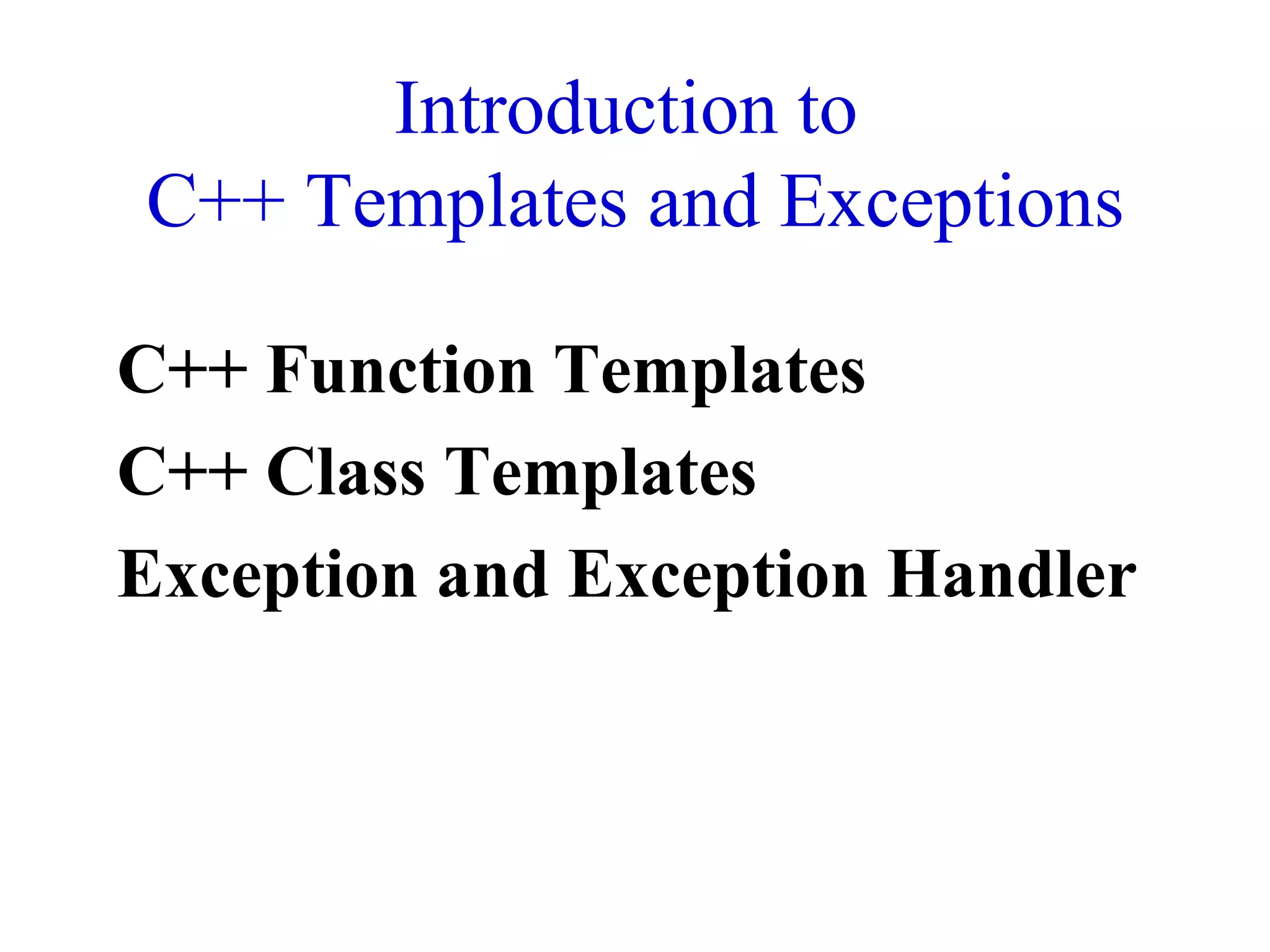
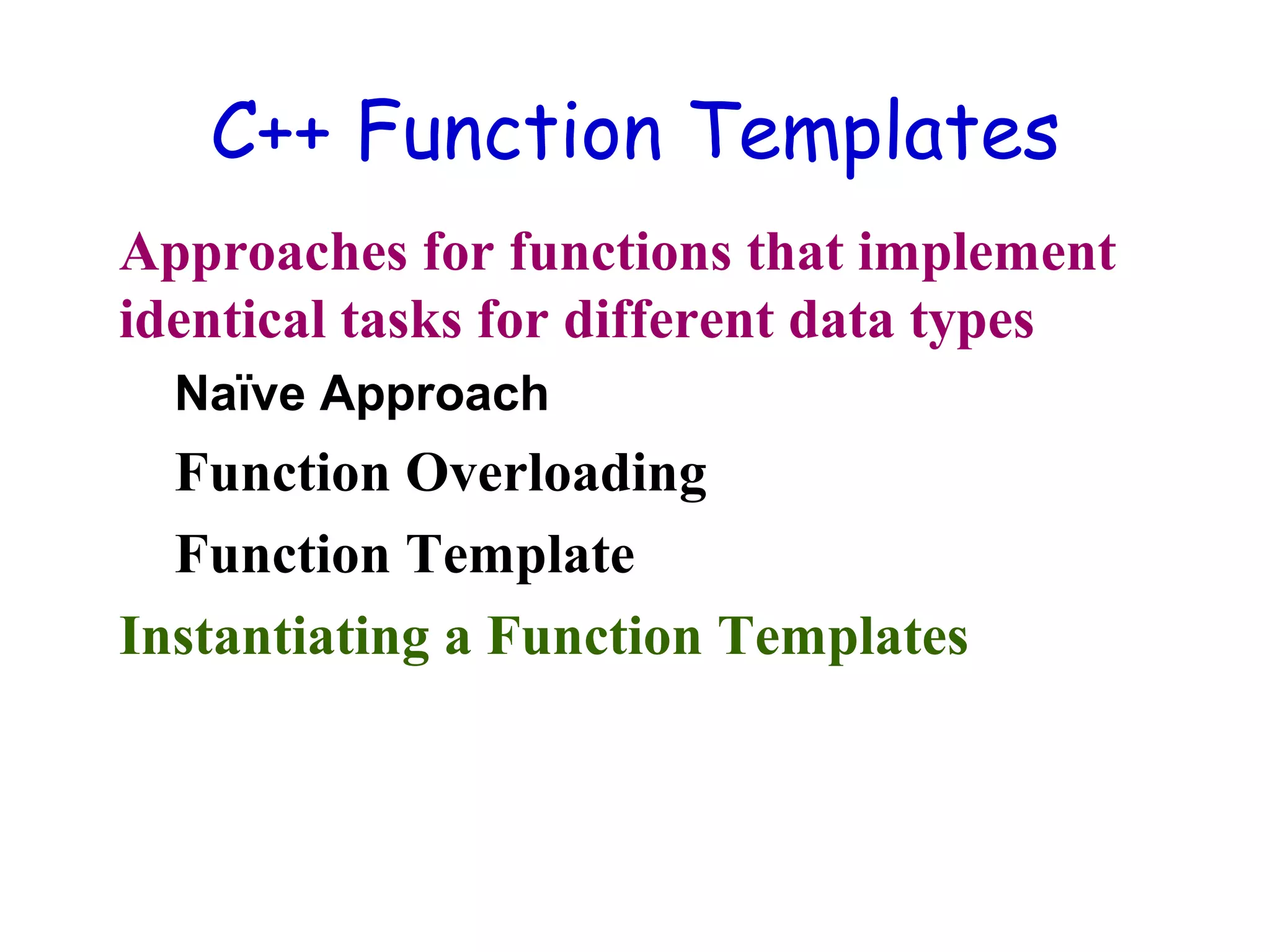
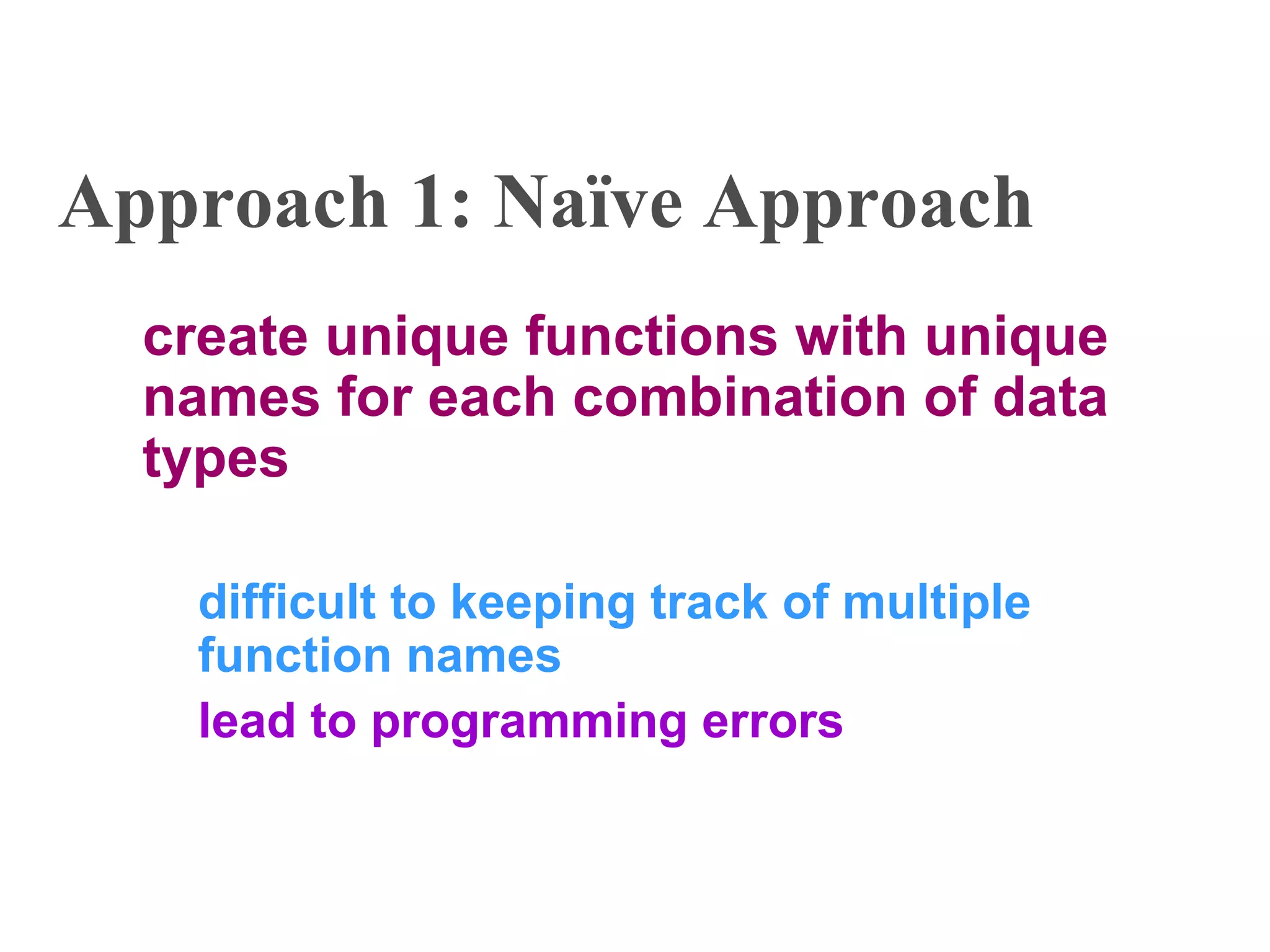
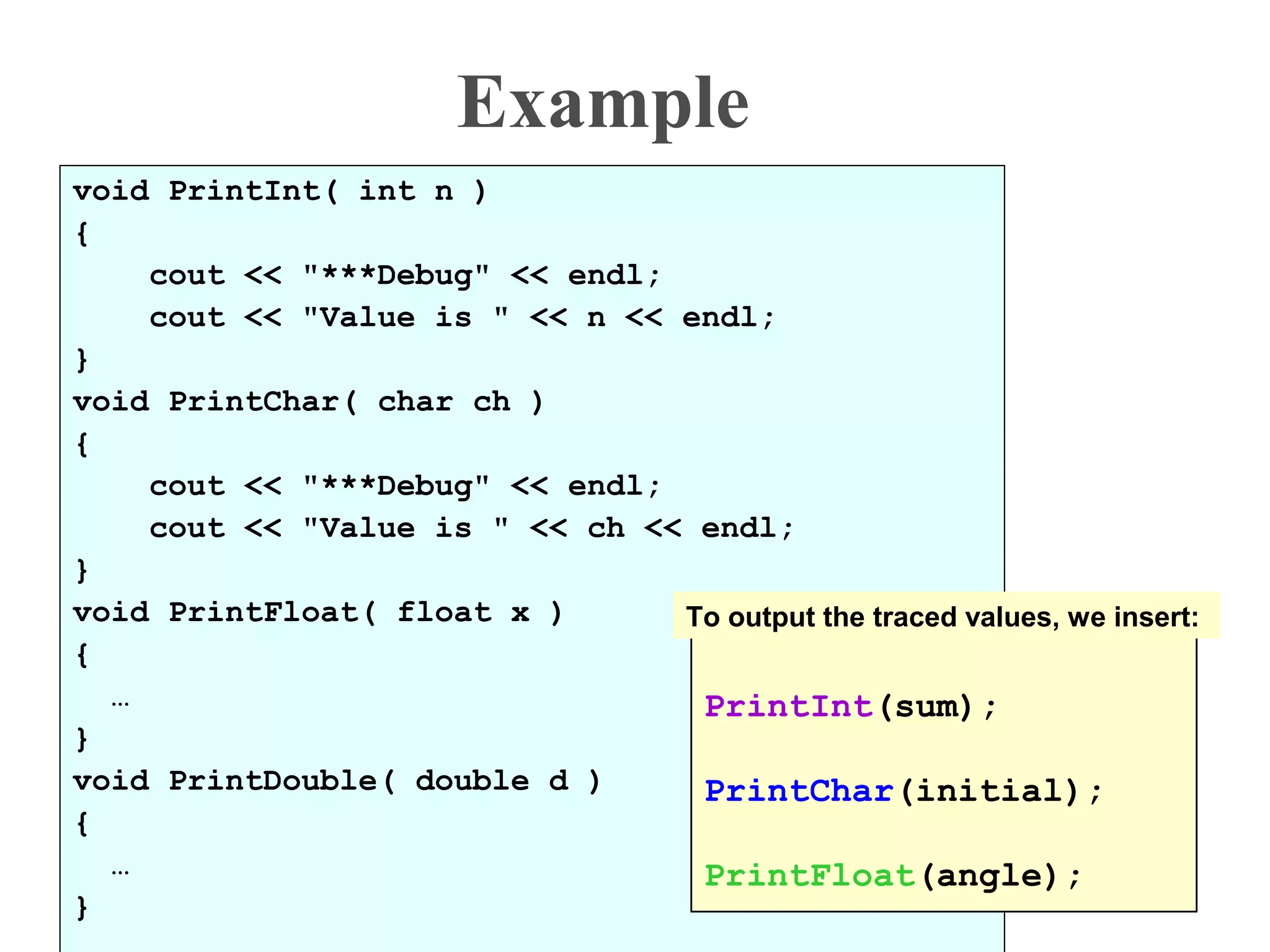
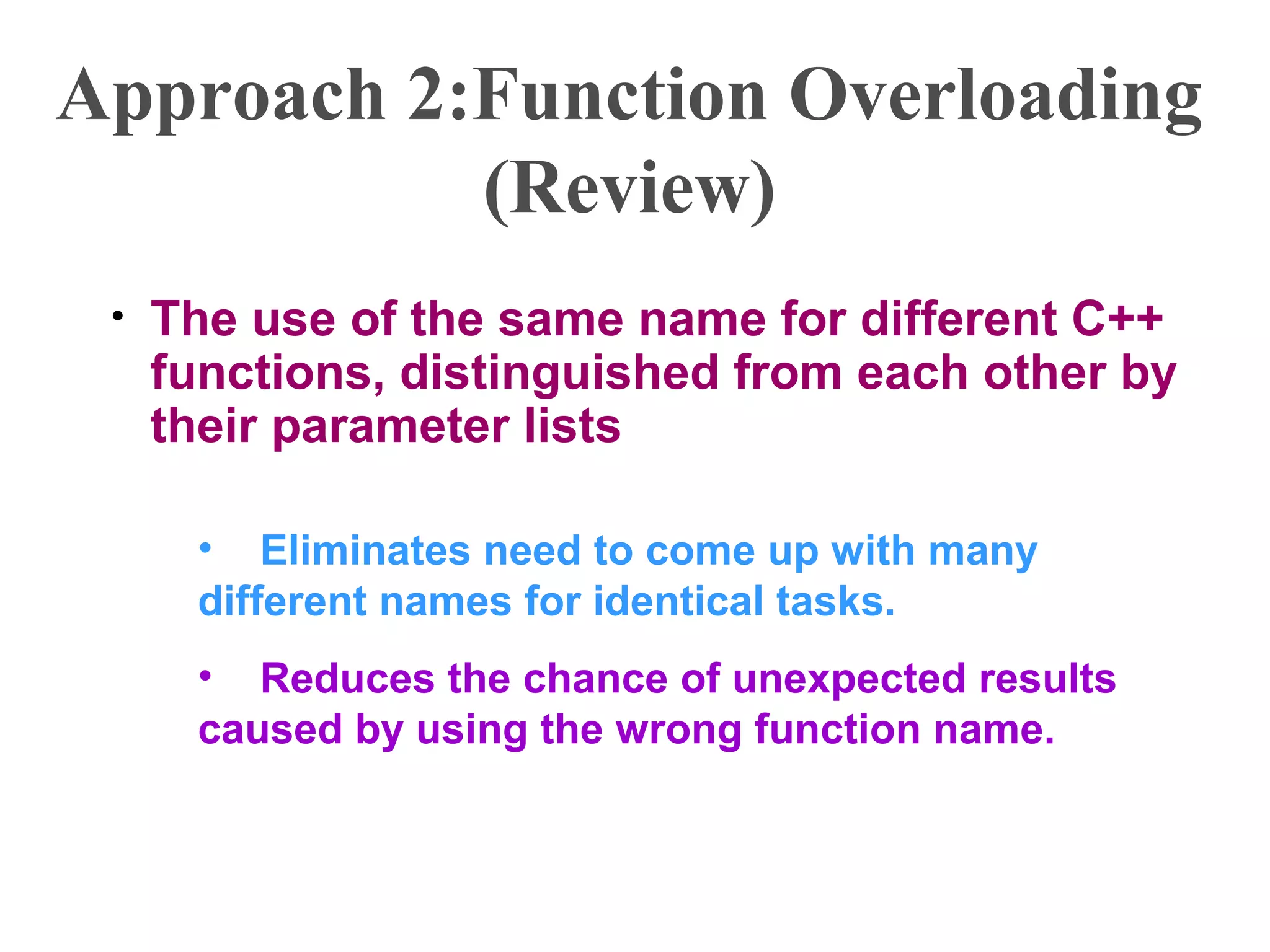
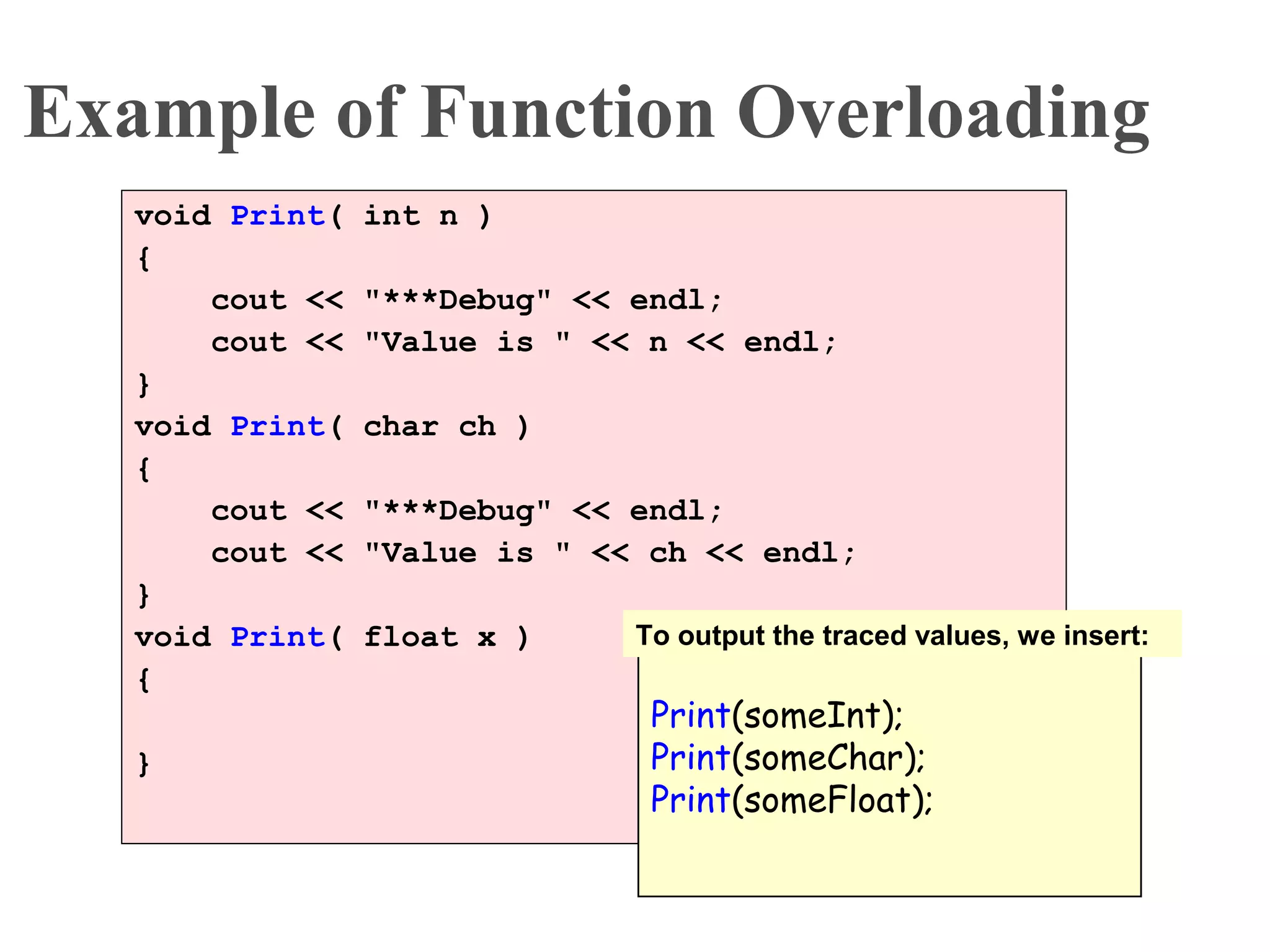
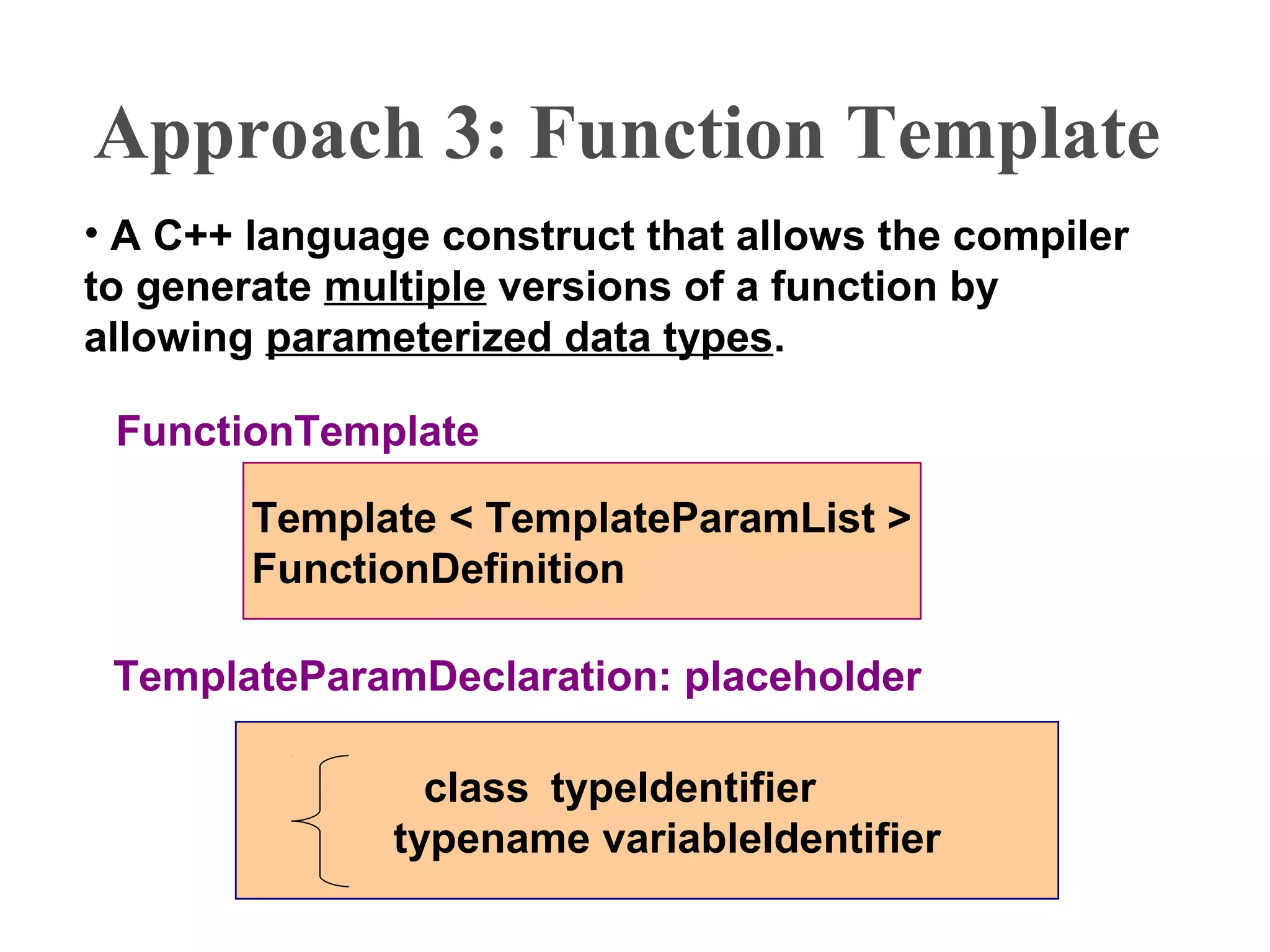
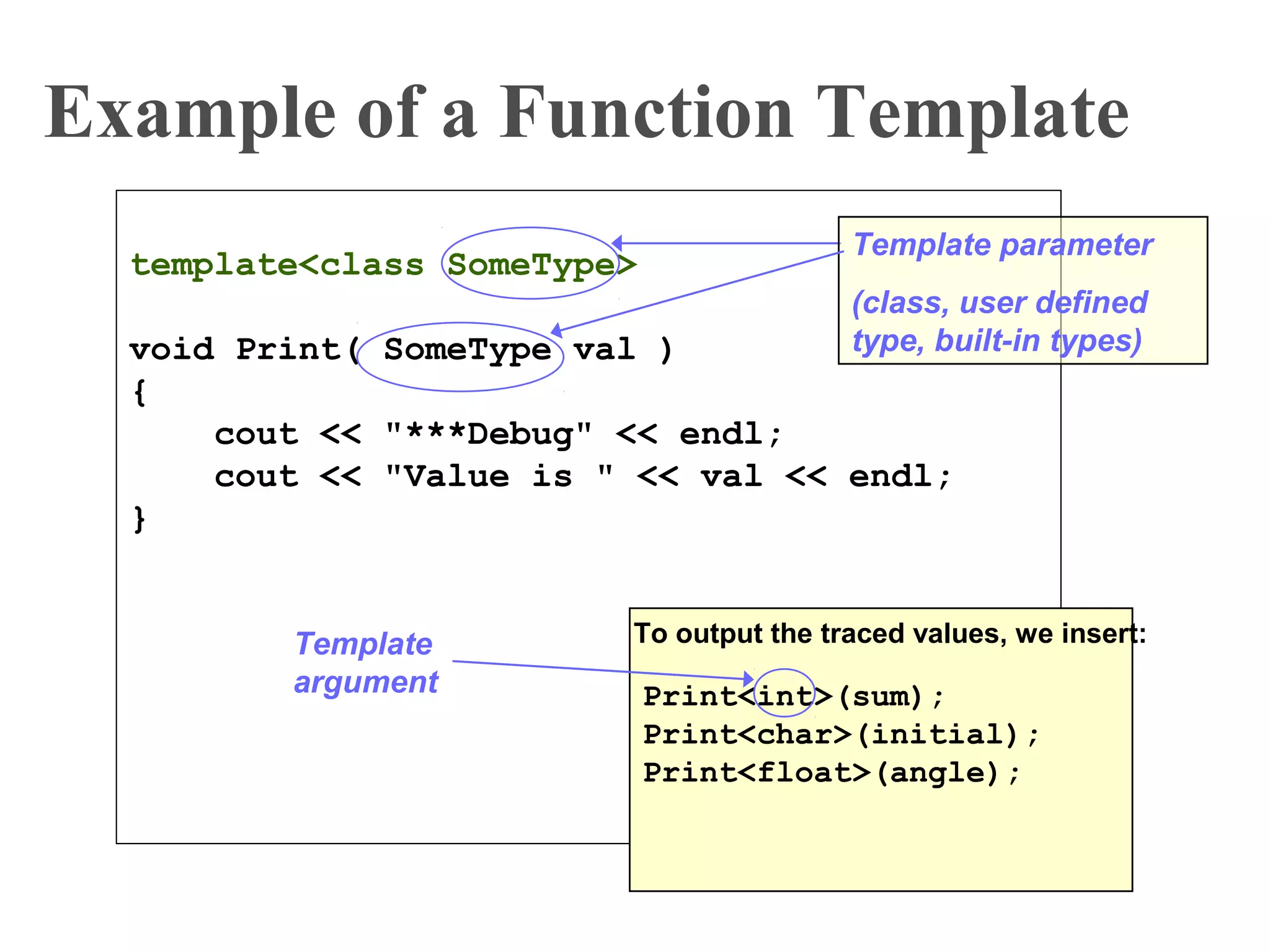
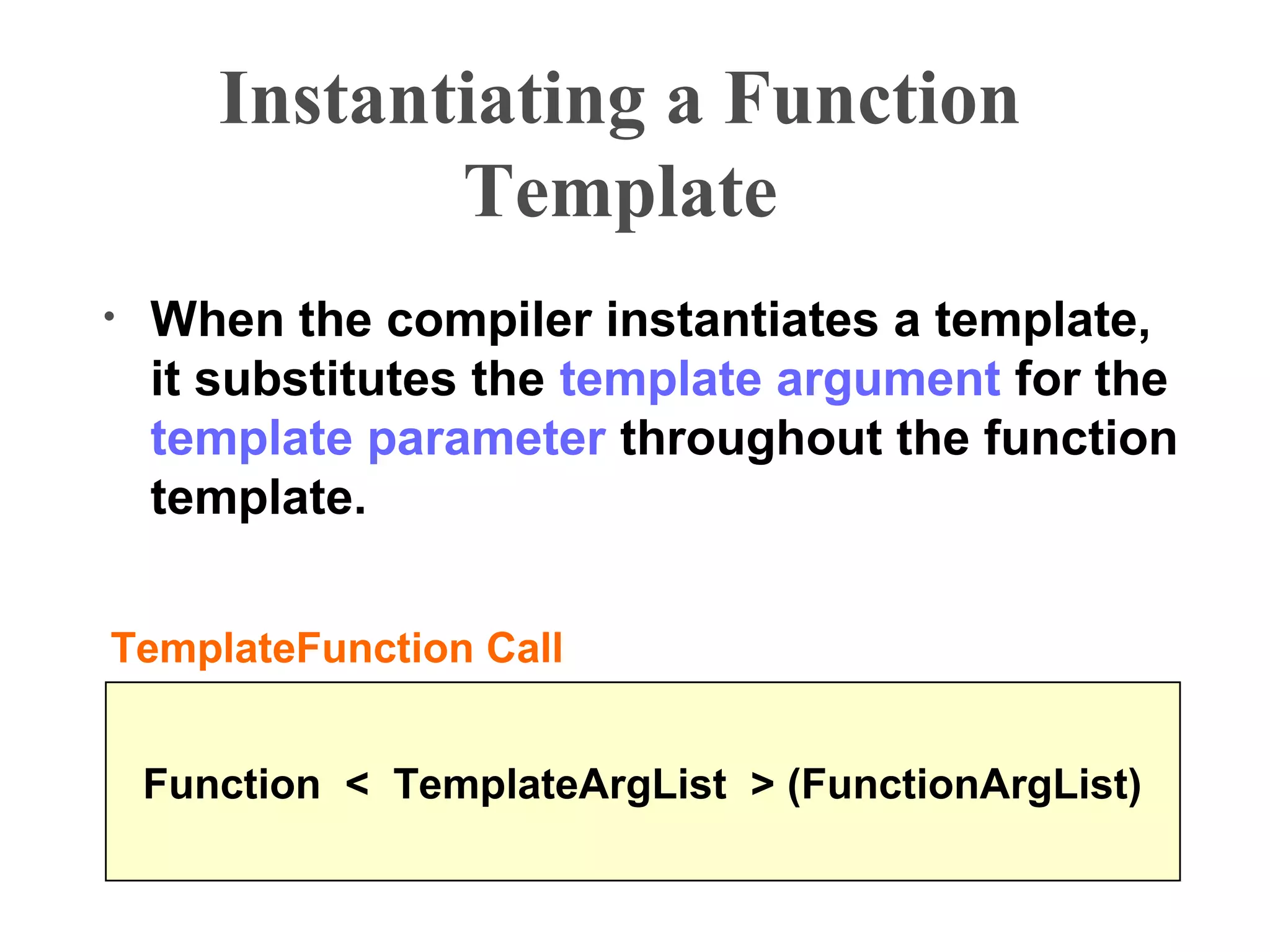
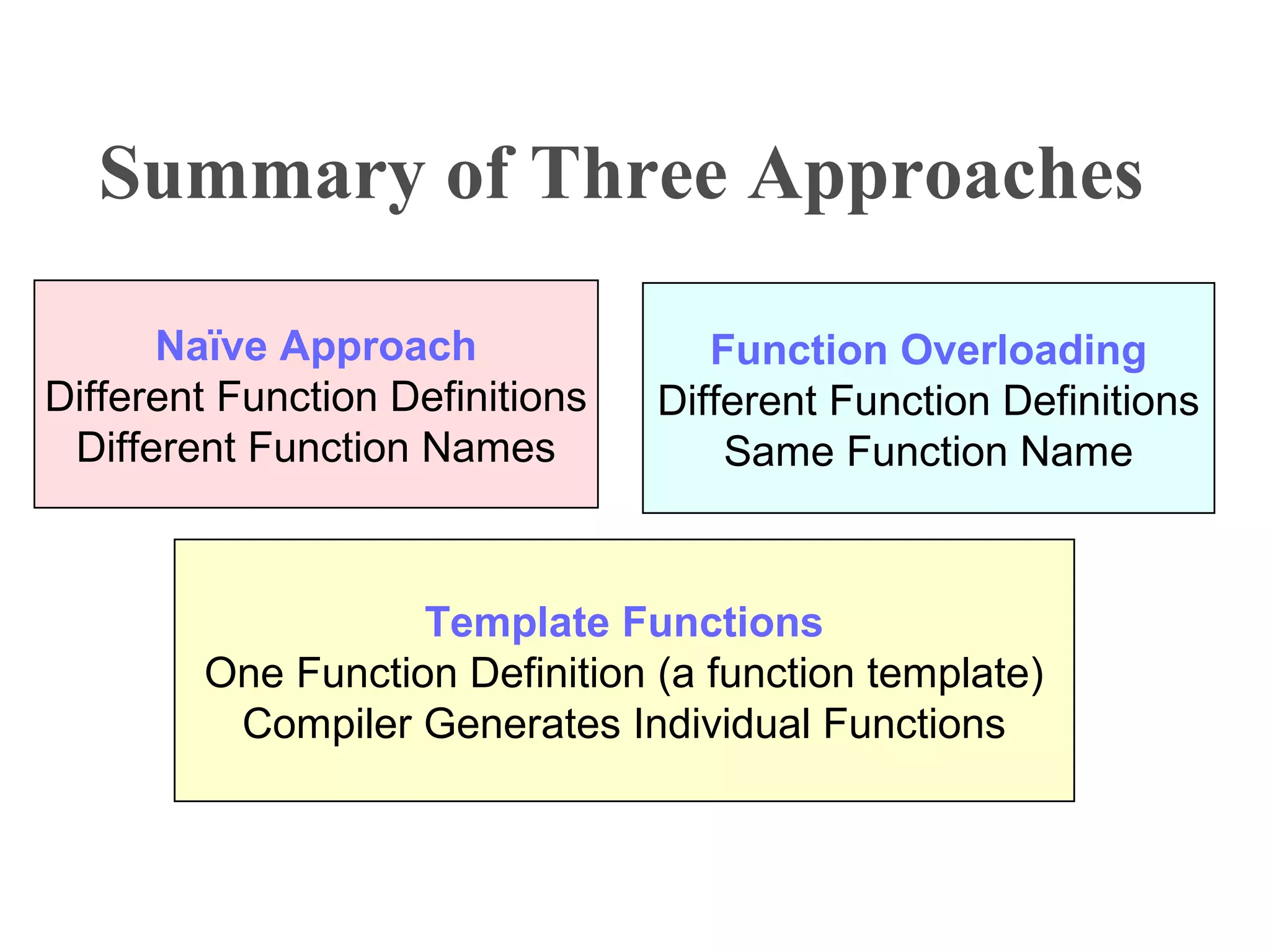
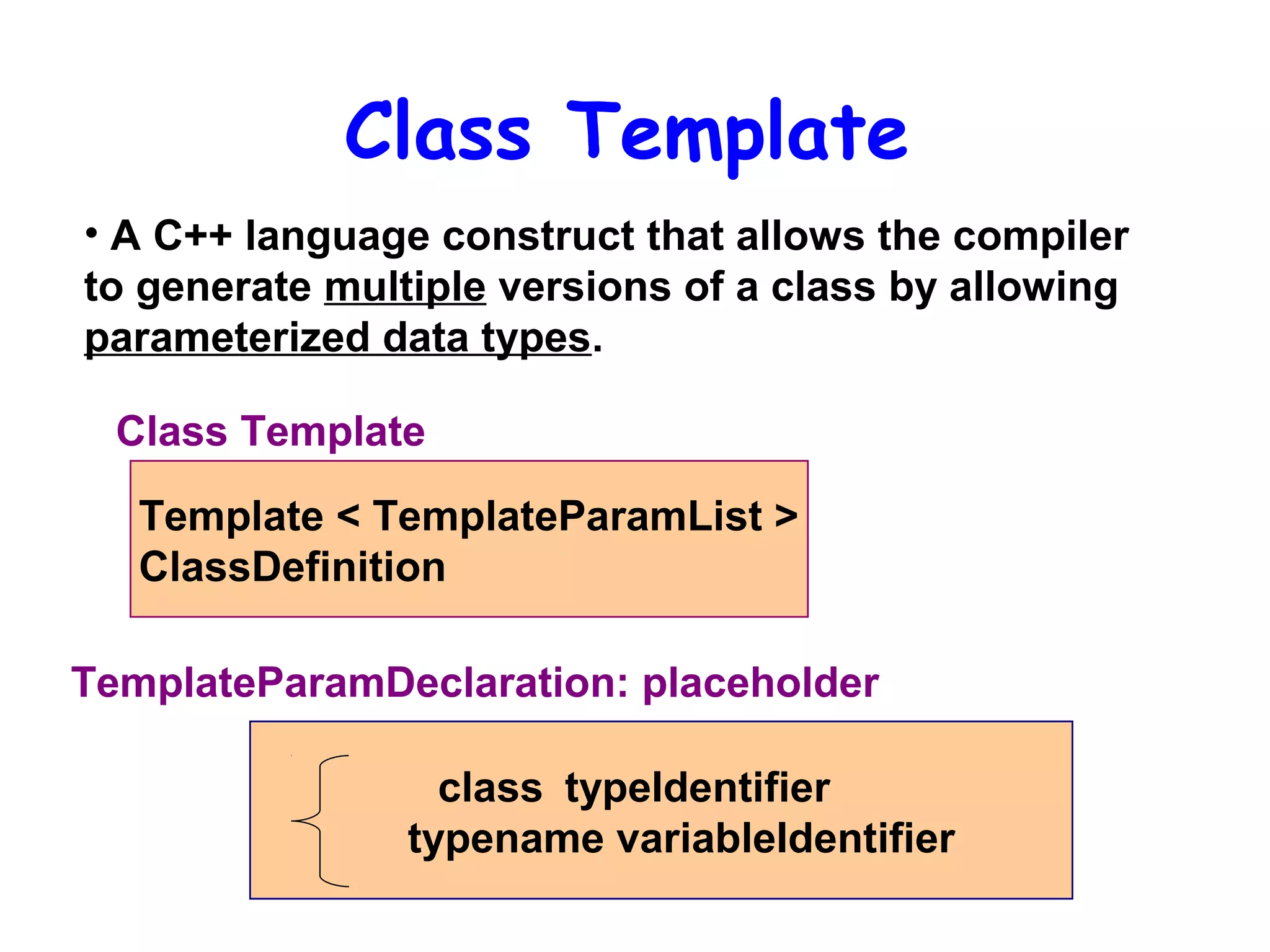
![Example of a Class Template
template<class ItemType>
class GList
{
public:
bool IsEmpty() const;
bool IsFull() const;
int Length() const;
void Insert( /* in */ ItemType item );
void Delete( /* in */ ItemType item );
bool IsPresent( /* in */ ItemType item ) const;
void SelSort();
void Print() const;
GList(); // Constructor
private:
int length;
ItemType data[MAX_LENGTH];
};
Template
parameter](https://image.slidesharecdn.com/unitiii-150330223857-conversion-gate01/75/Unit-iii-12-2048.jpg)
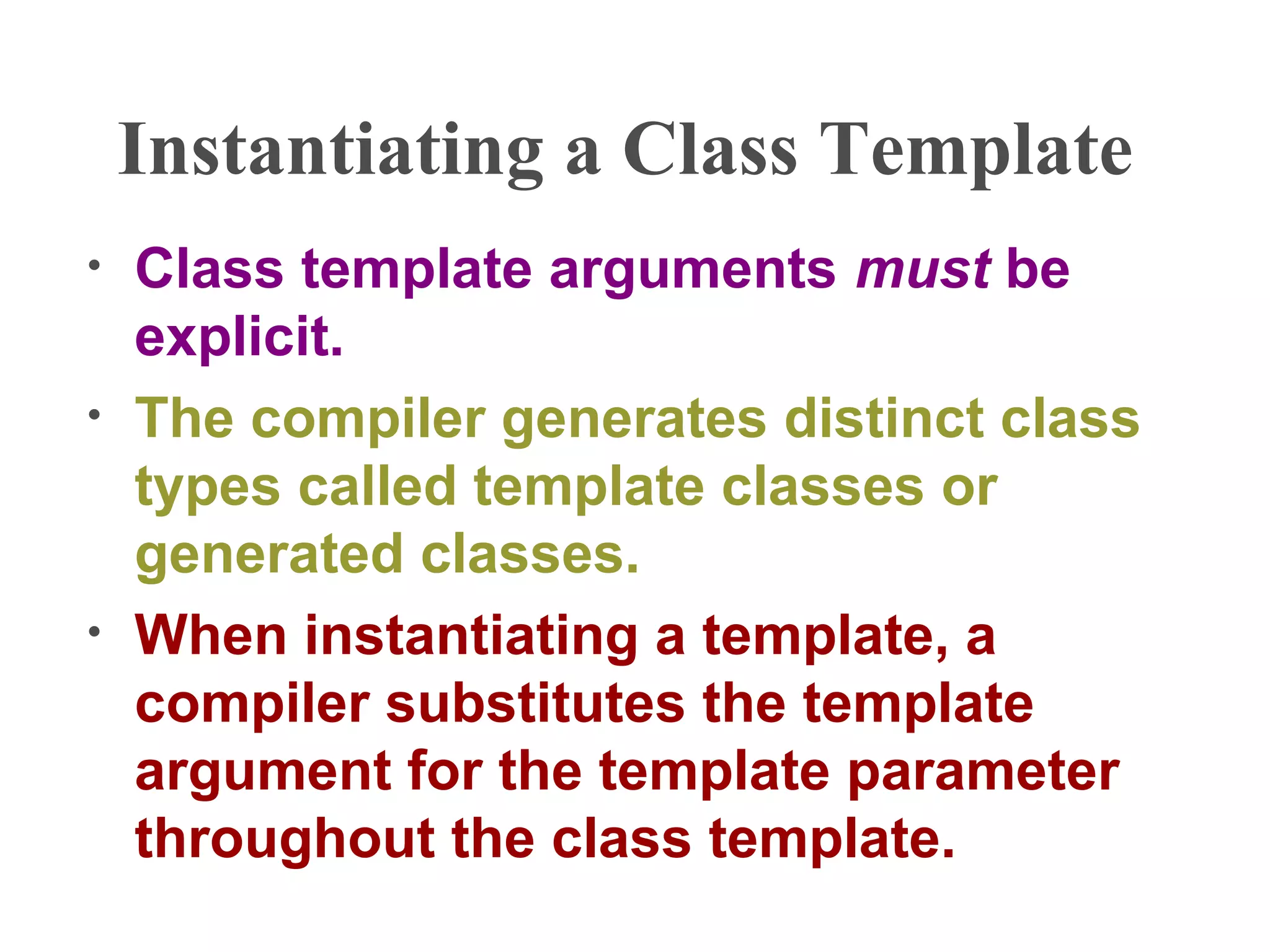
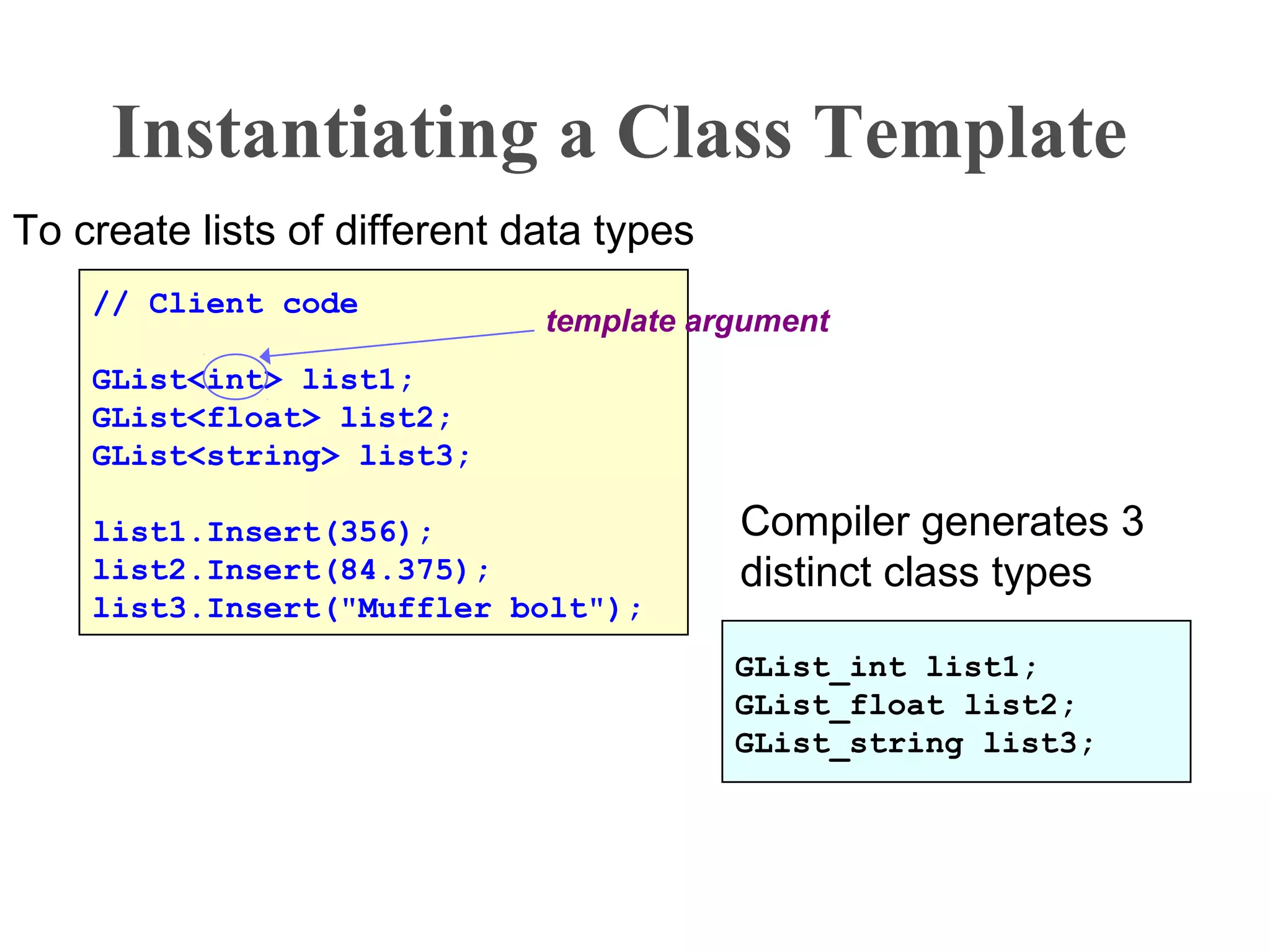
![Substitution Example
class GList_int
{
public:
void Insert( /* in */ ItemType item );
void Delete( /* in */ ItemType item );
bool IsPresent( /* in */ ItemType item ) const;
private:
int length;
ItemType data[MAX_LENGTH];
};
int
int
int
int](https://image.slidesharecdn.com/unitiii-150330223857-conversion-gate01/75/Unit-iii-15-2048.jpg)
![Function Definitions for
Members of a Template Class
template<class ItemType>
void GList<ItemType>::Insert( /* in */ ItemType item )
{
data[length] = item;
length++;
}
//after substitution of float
void GList<float>::Insert( /* in */ float item )
{
data[length] = item;
length++;
}](https://image.slidesharecdn.com/unitiii-150330223857-conversion-gate01/75/Unit-iii-16-2048.jpg)
